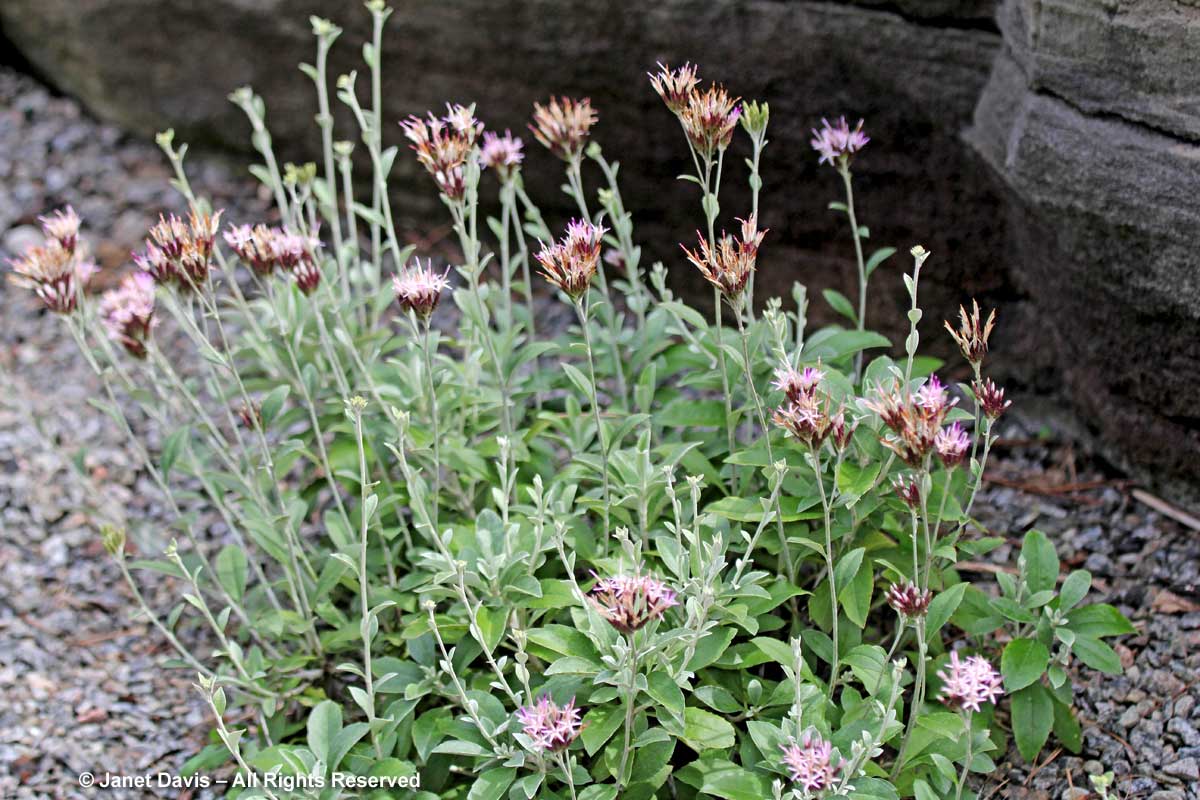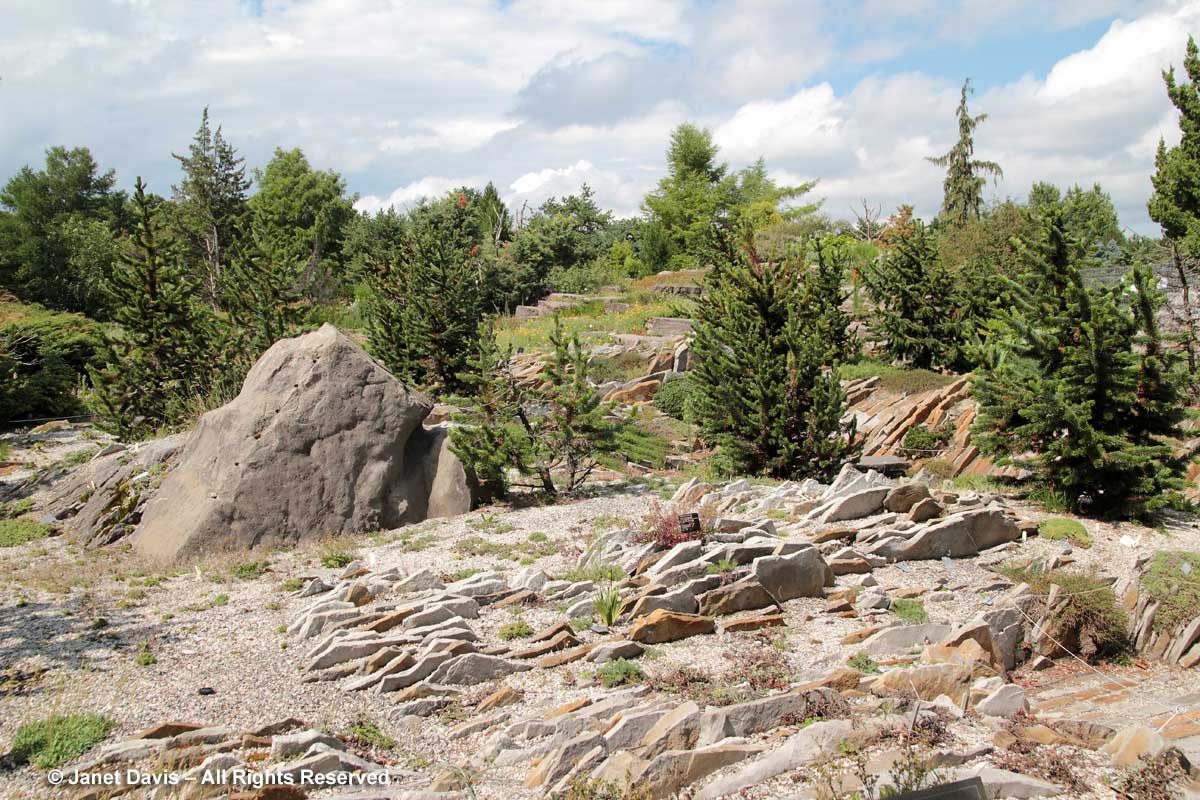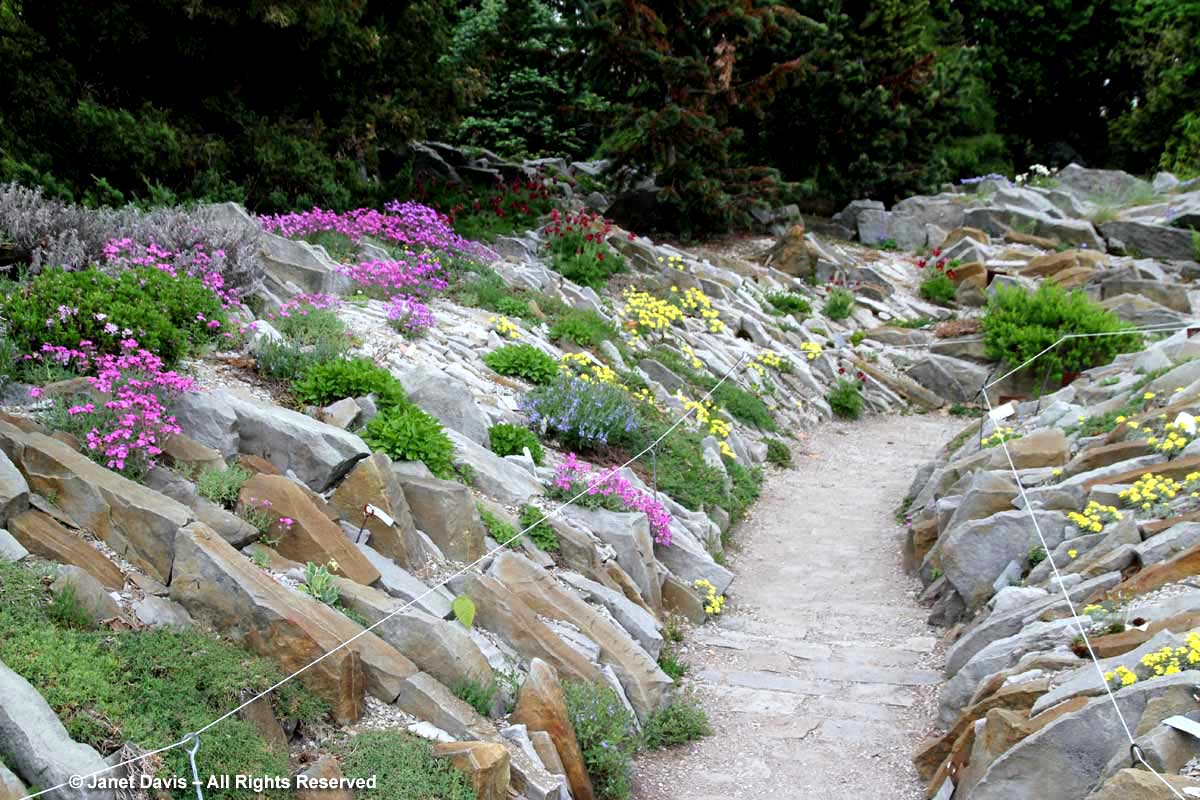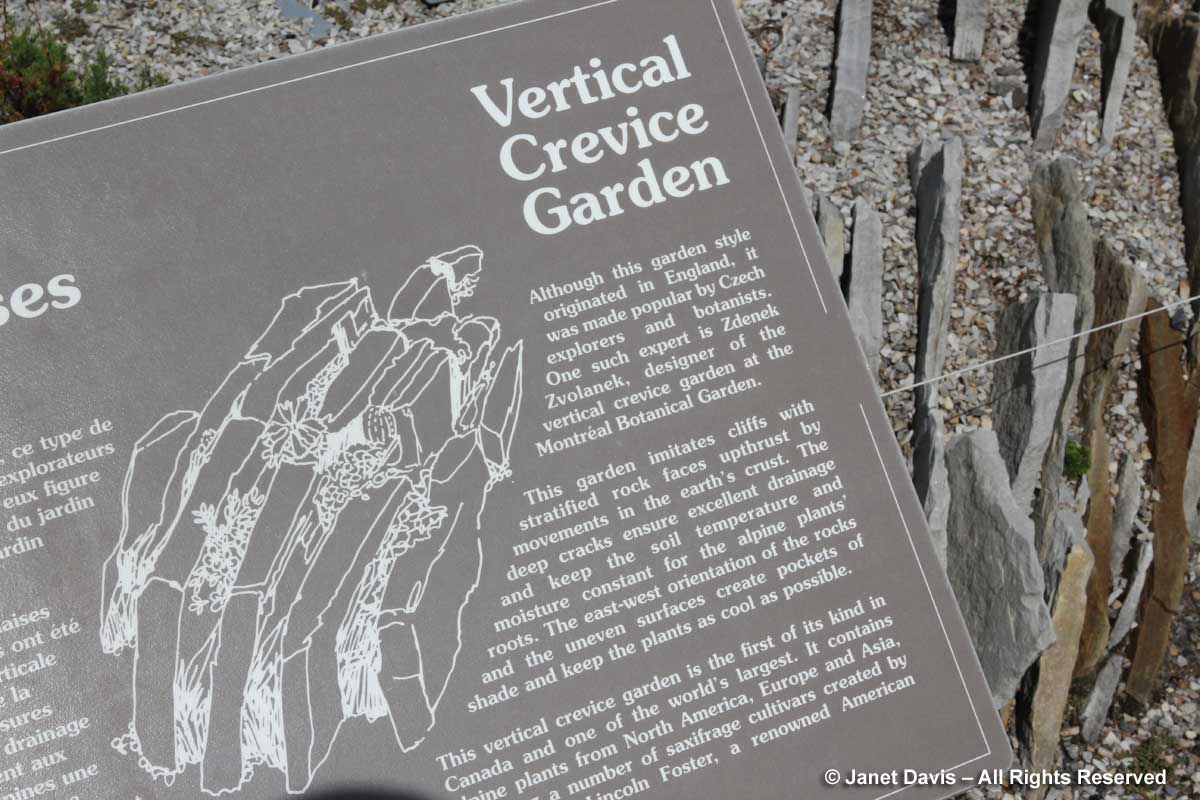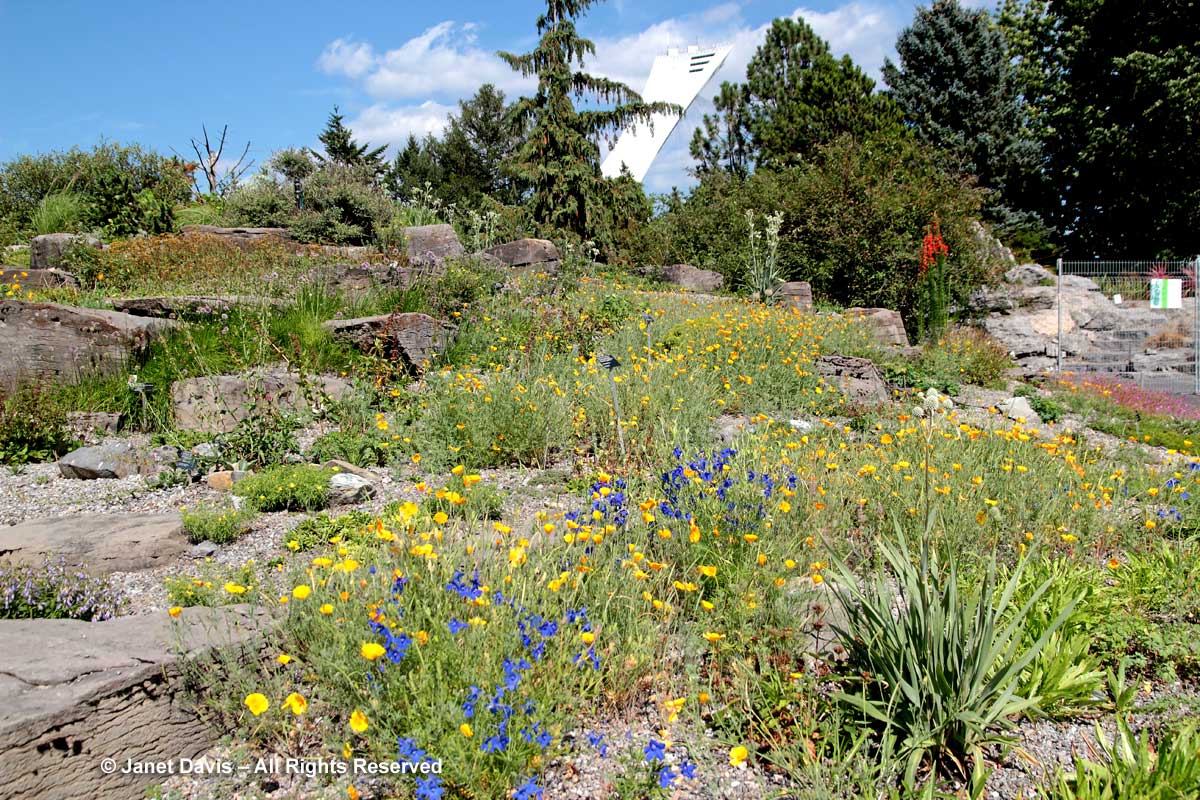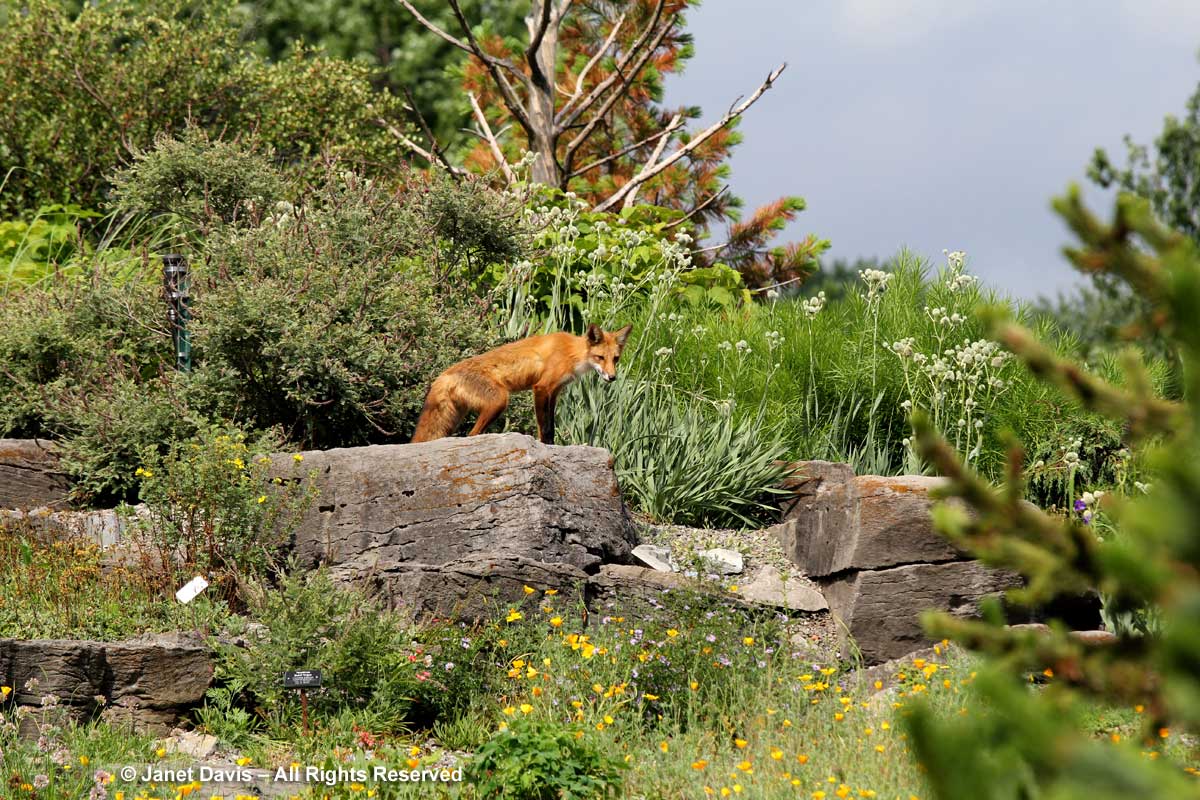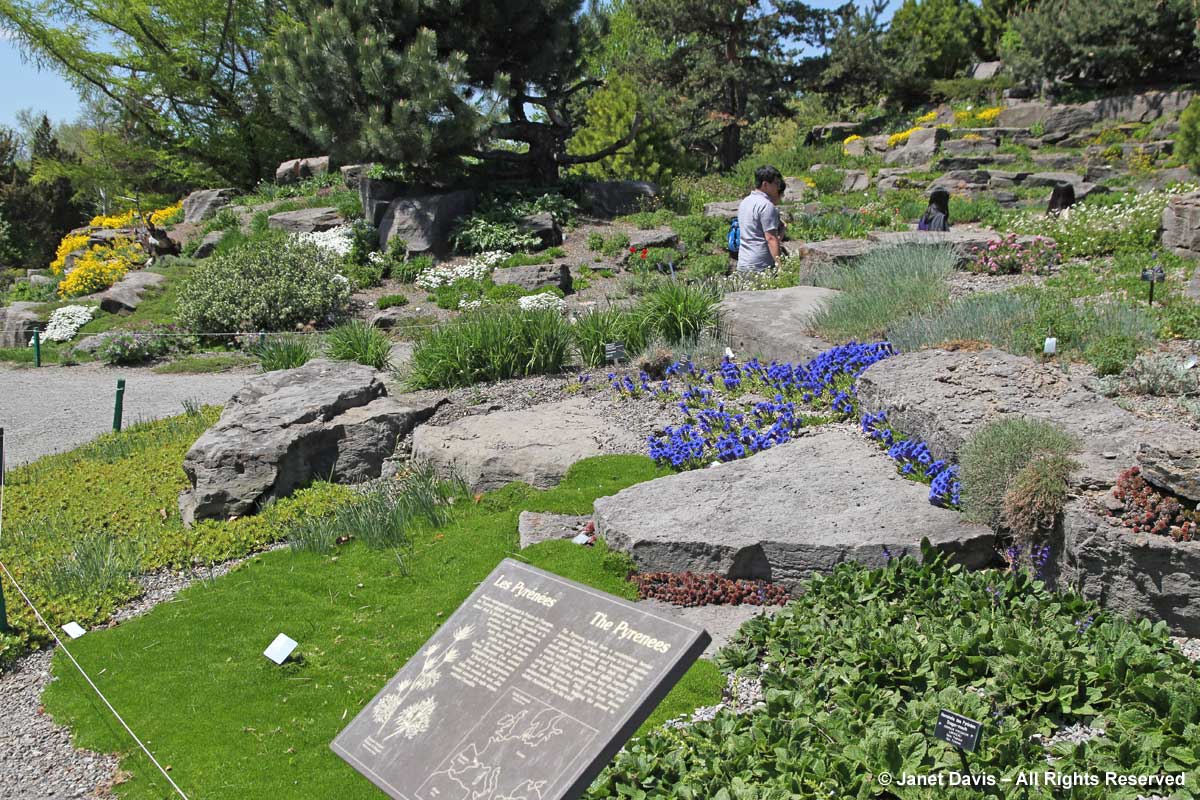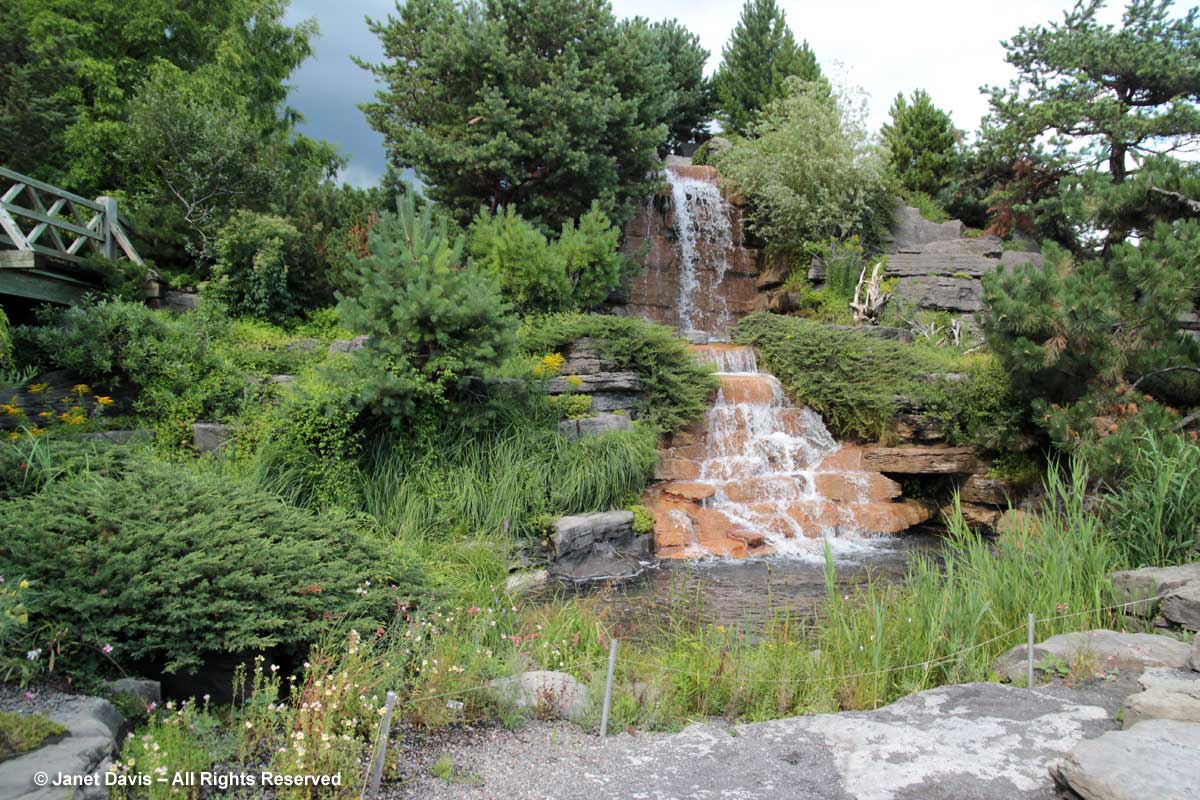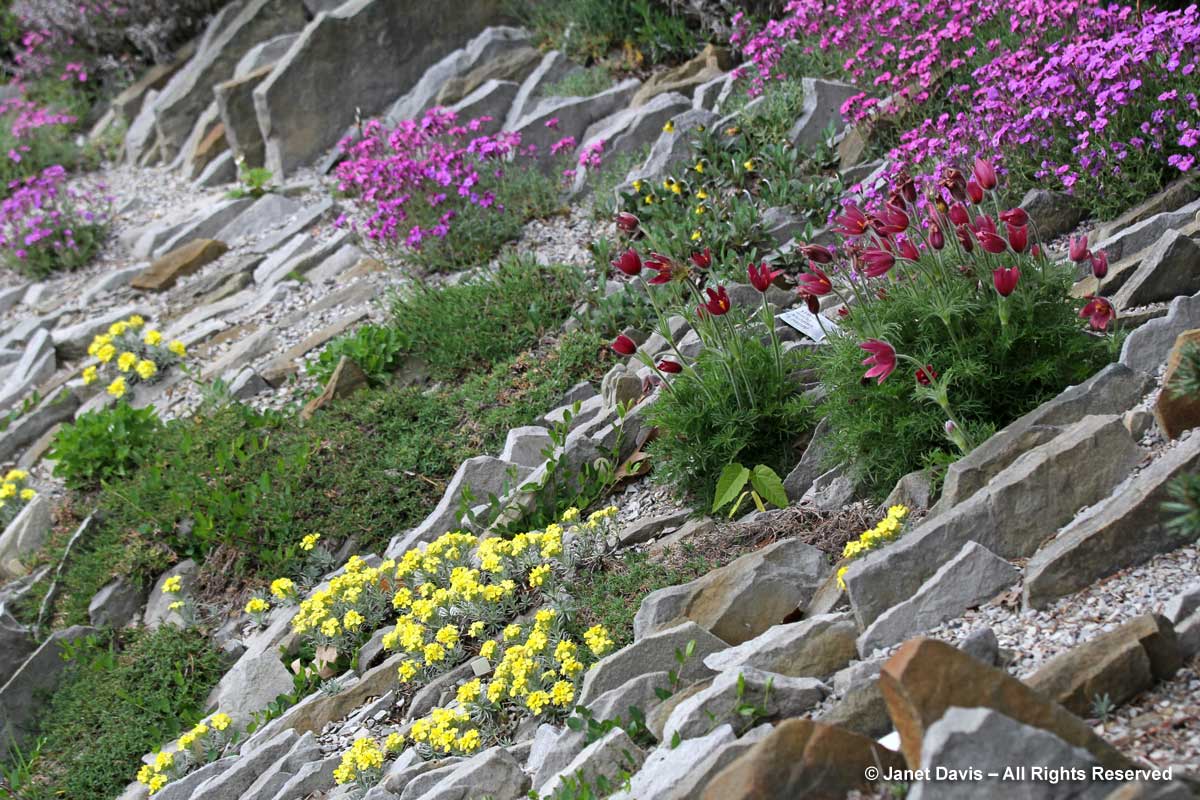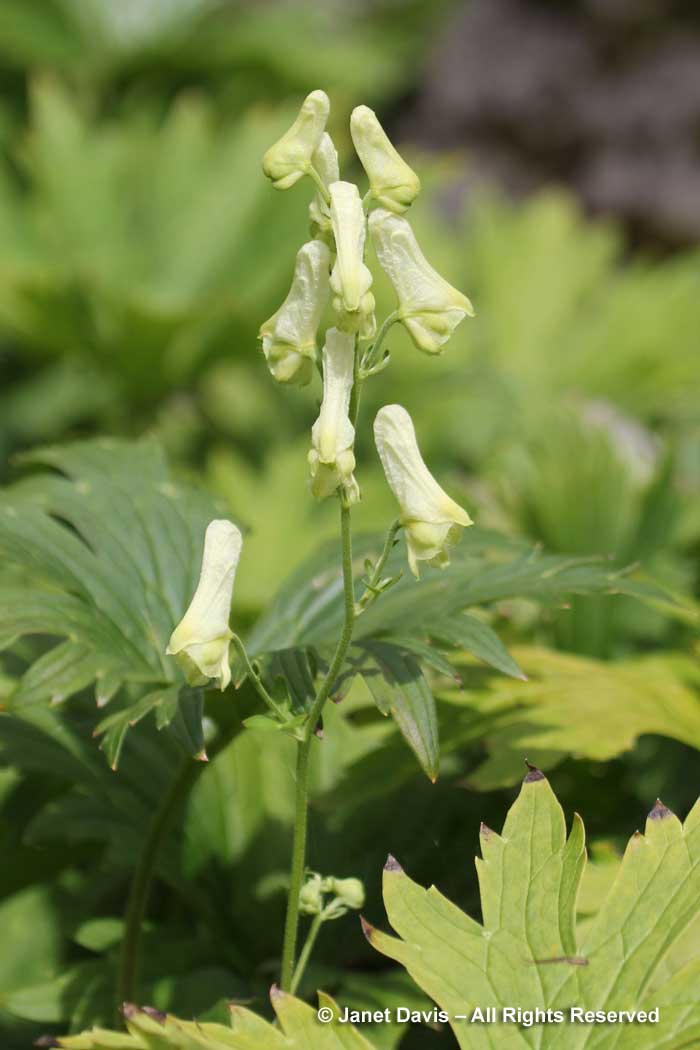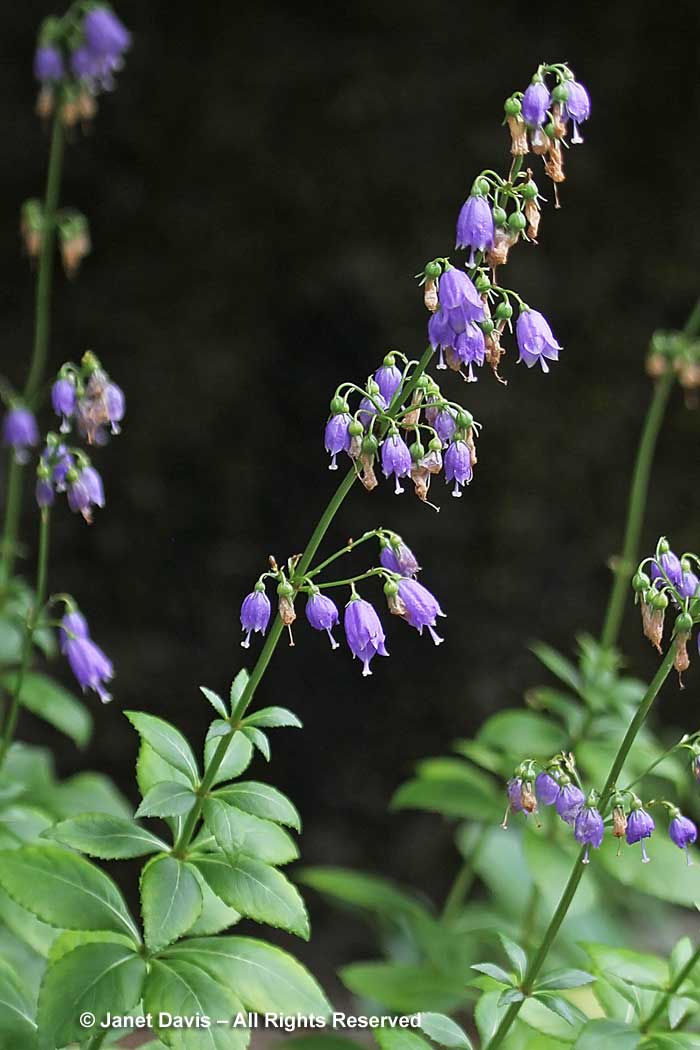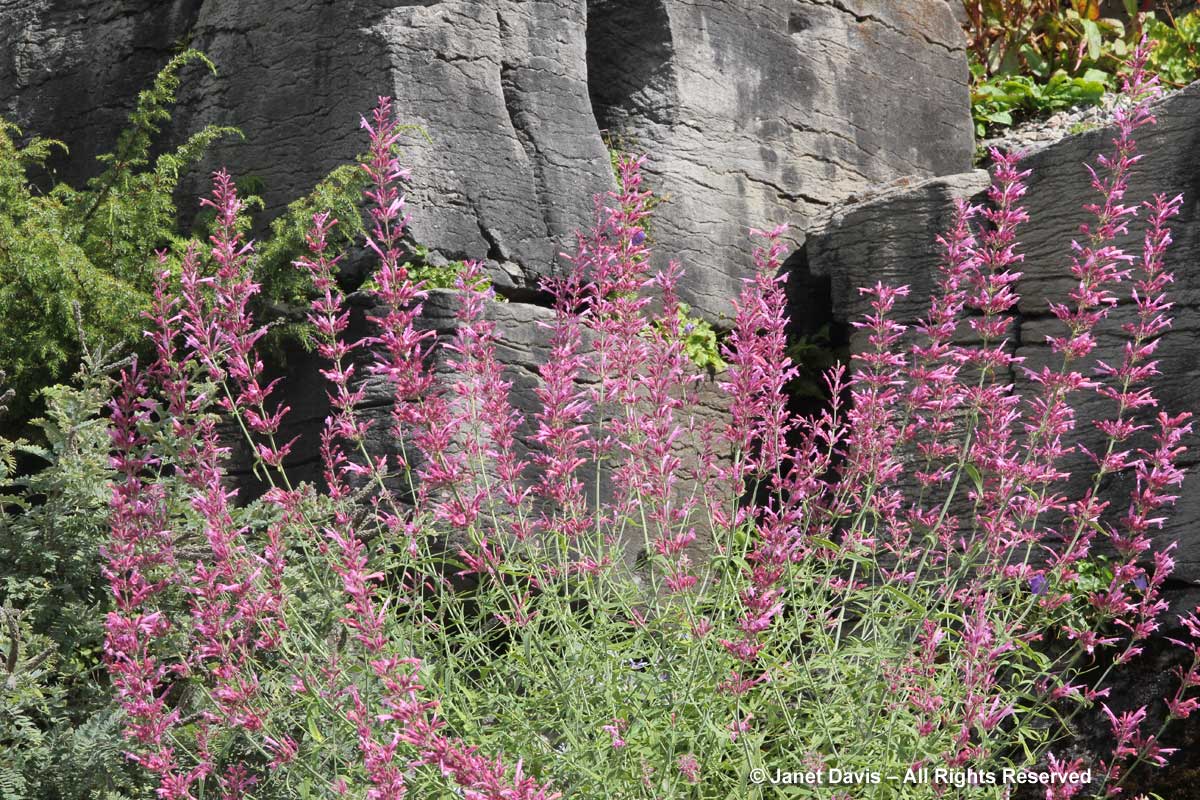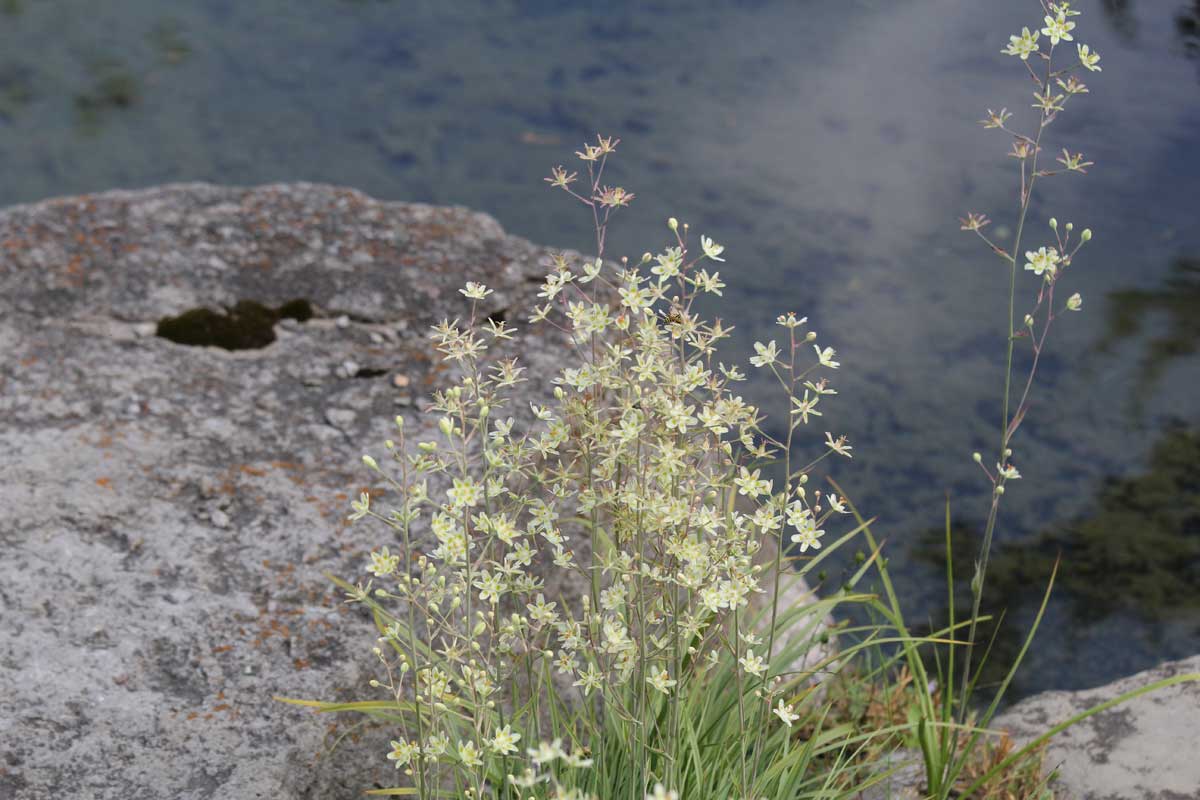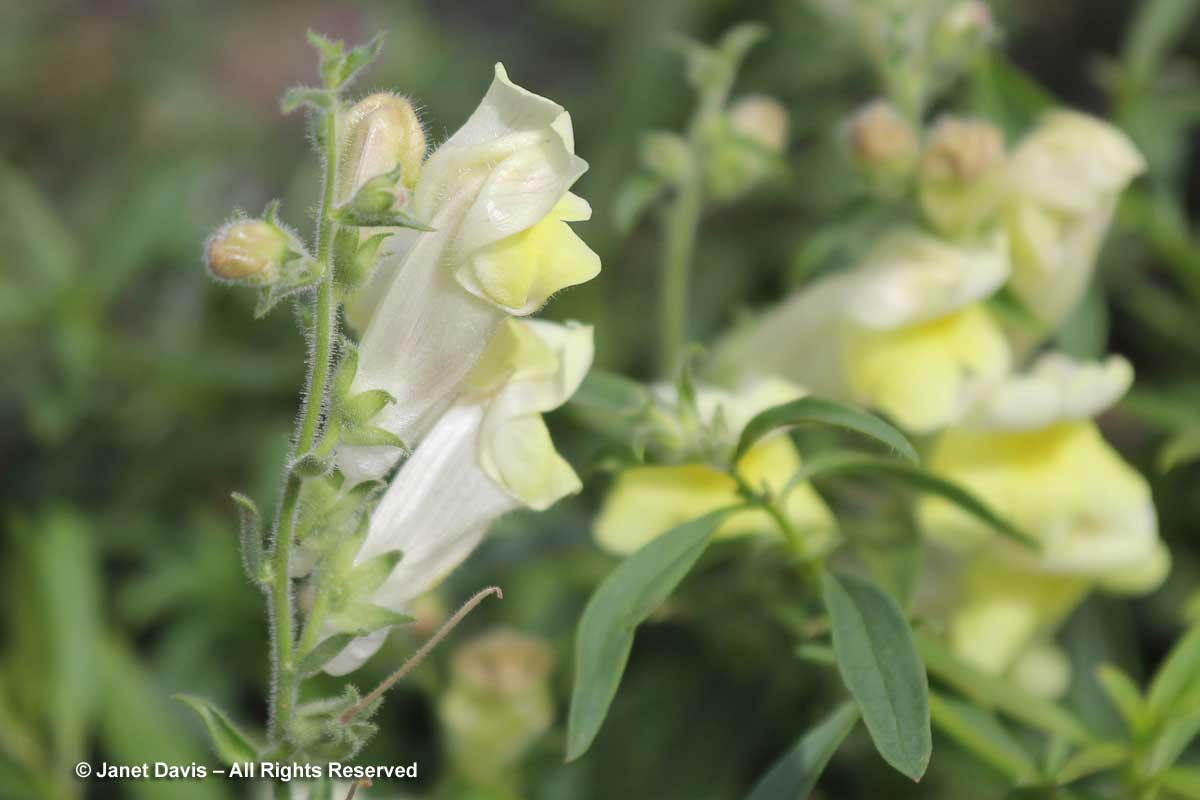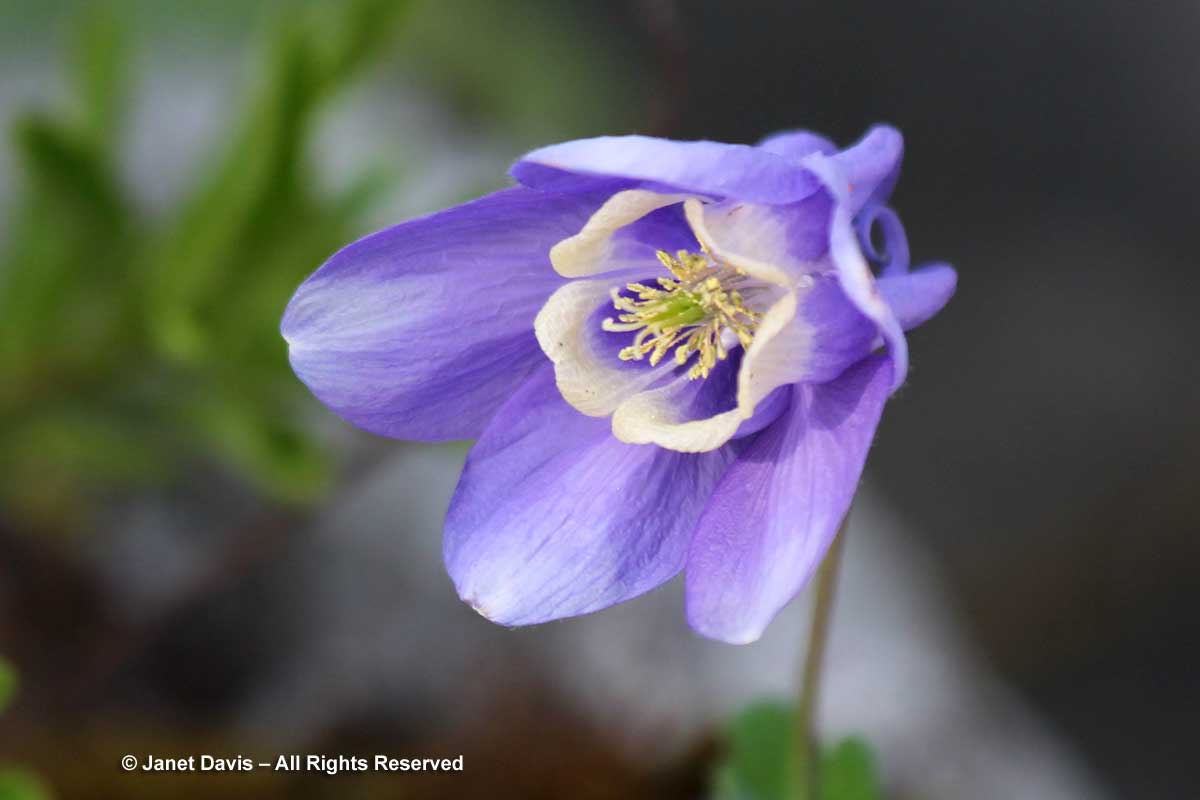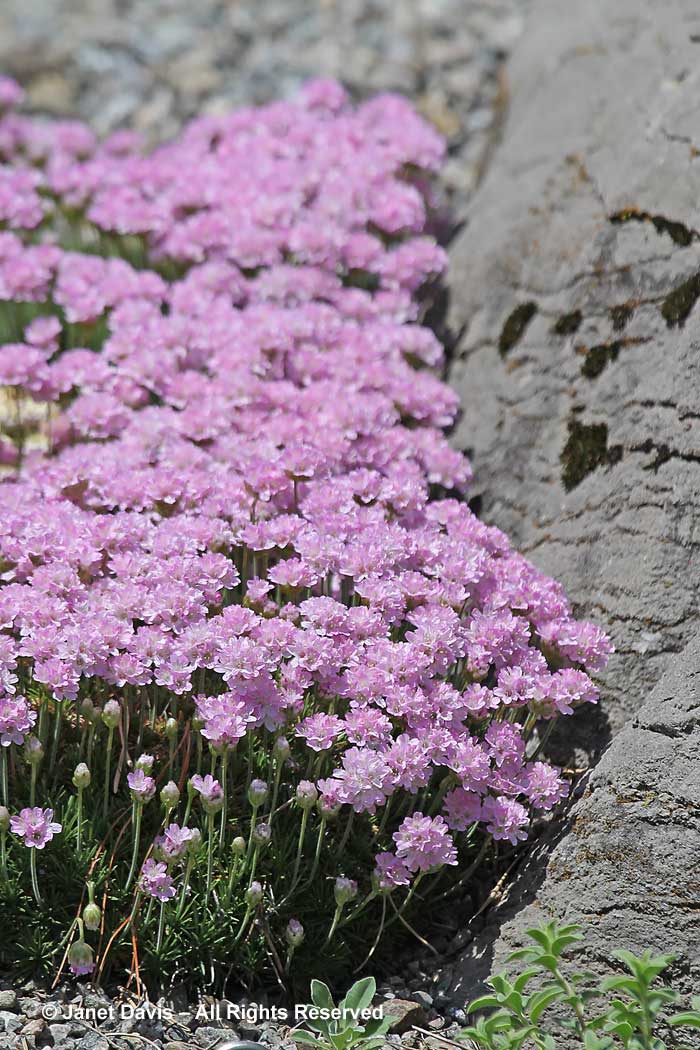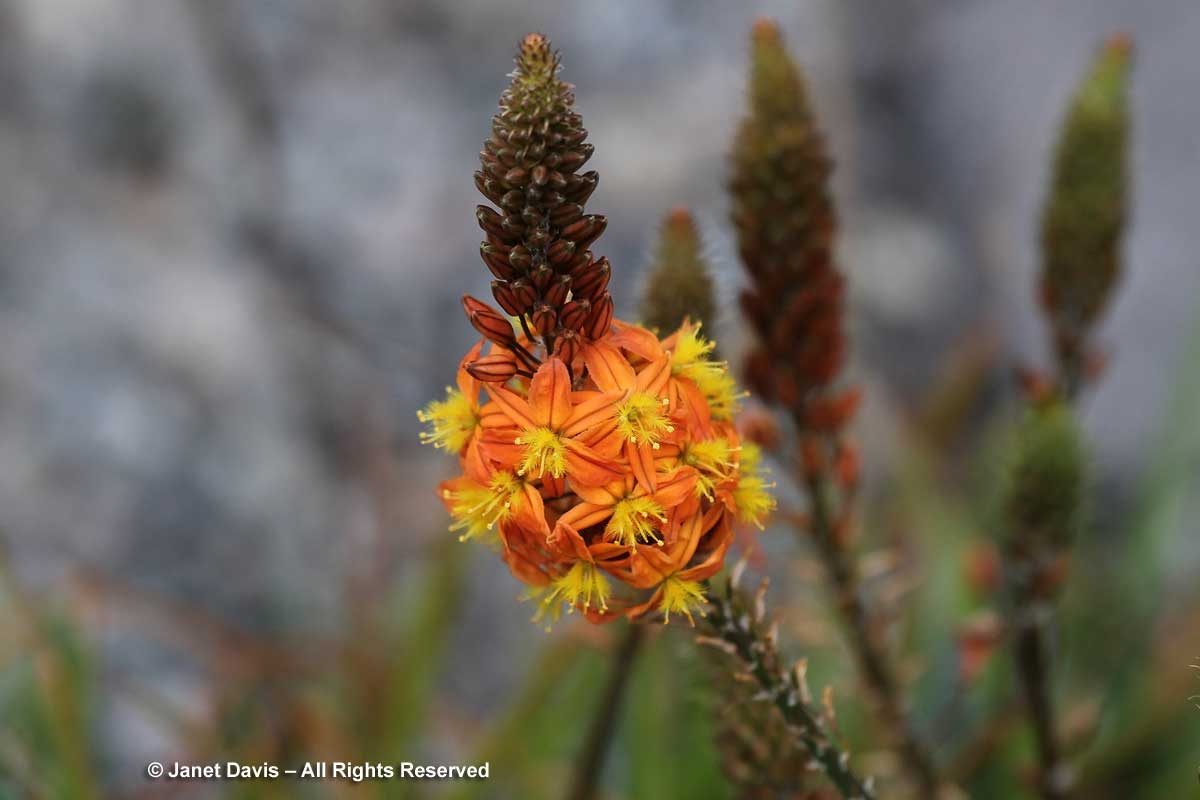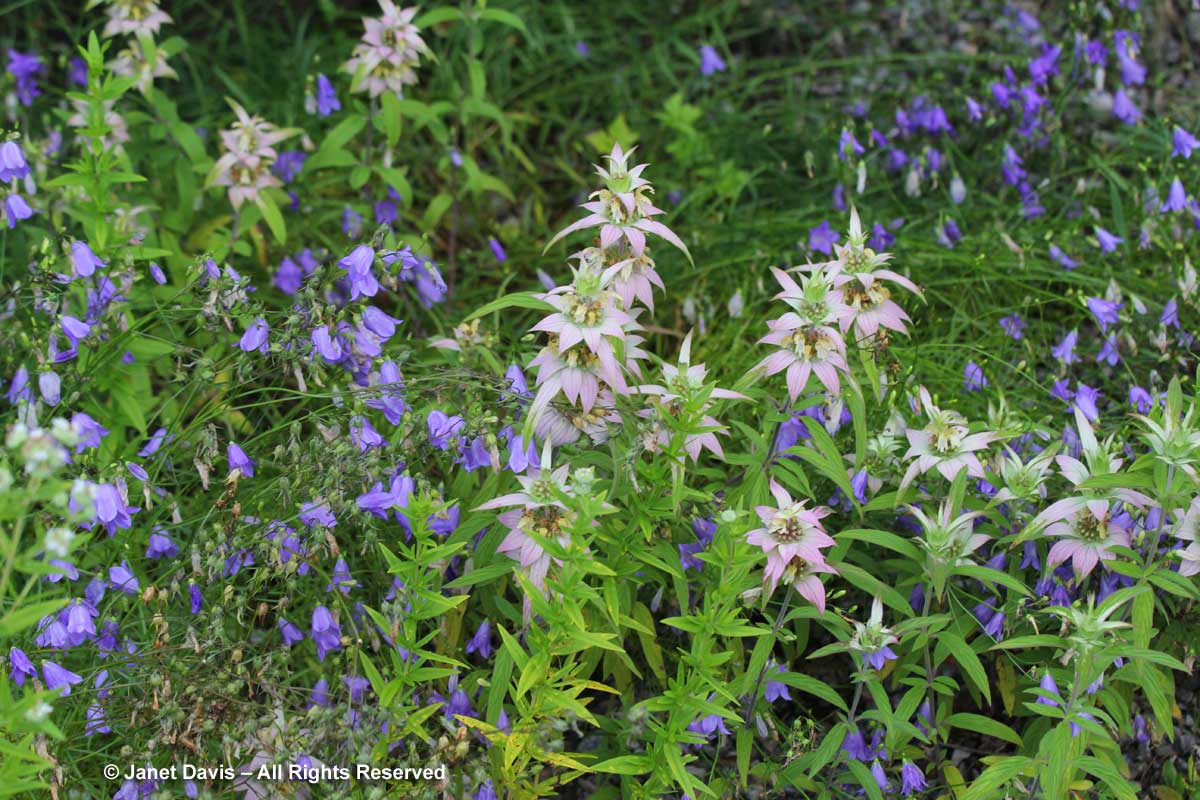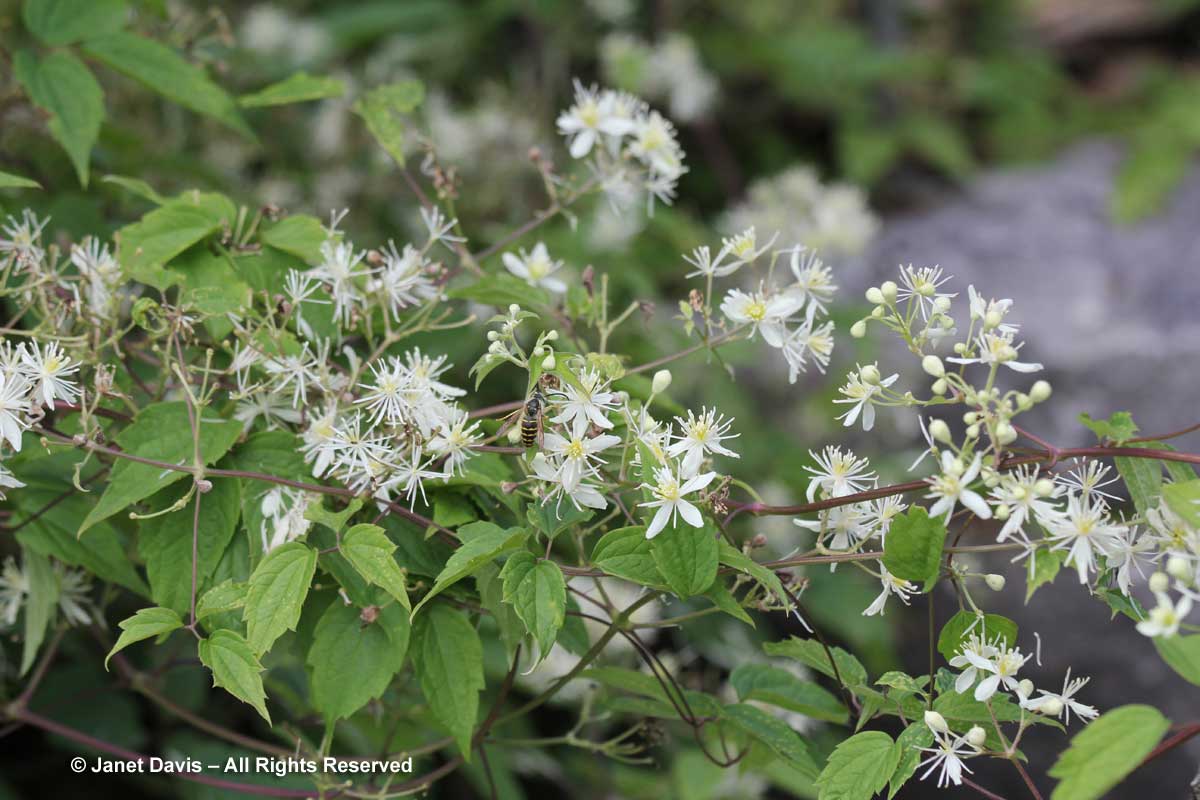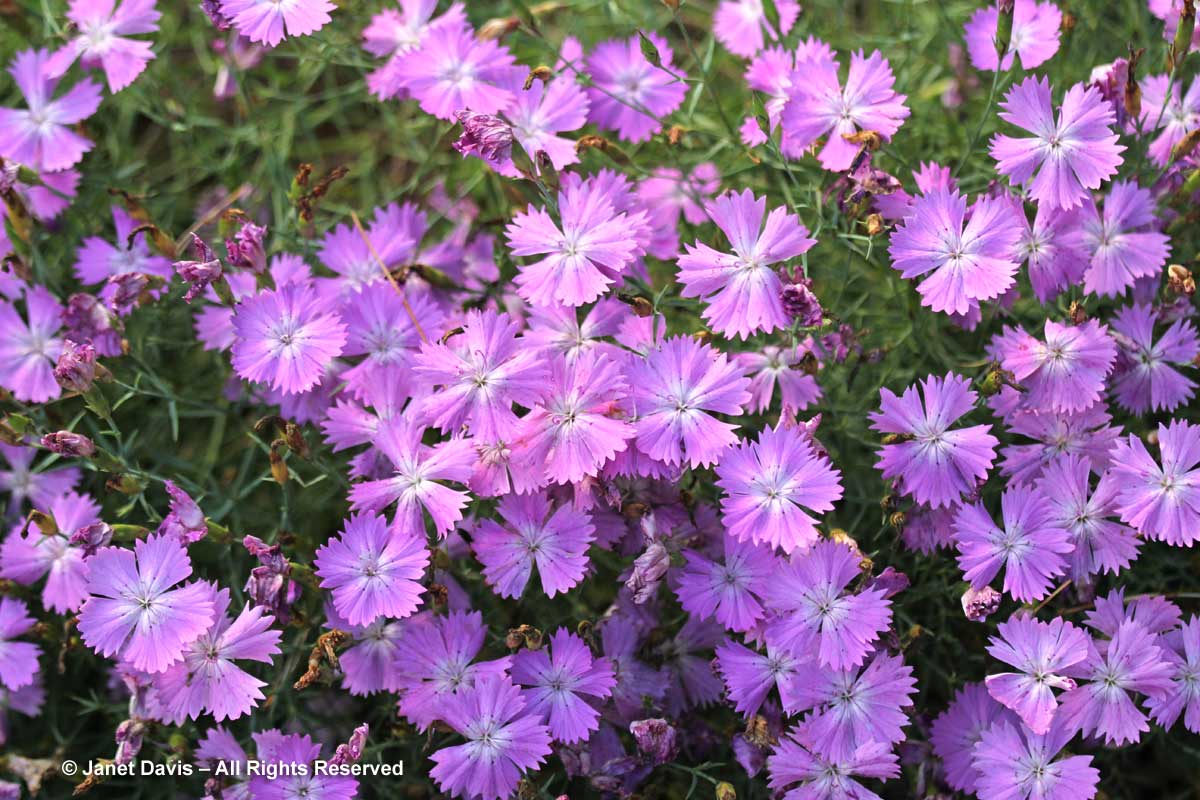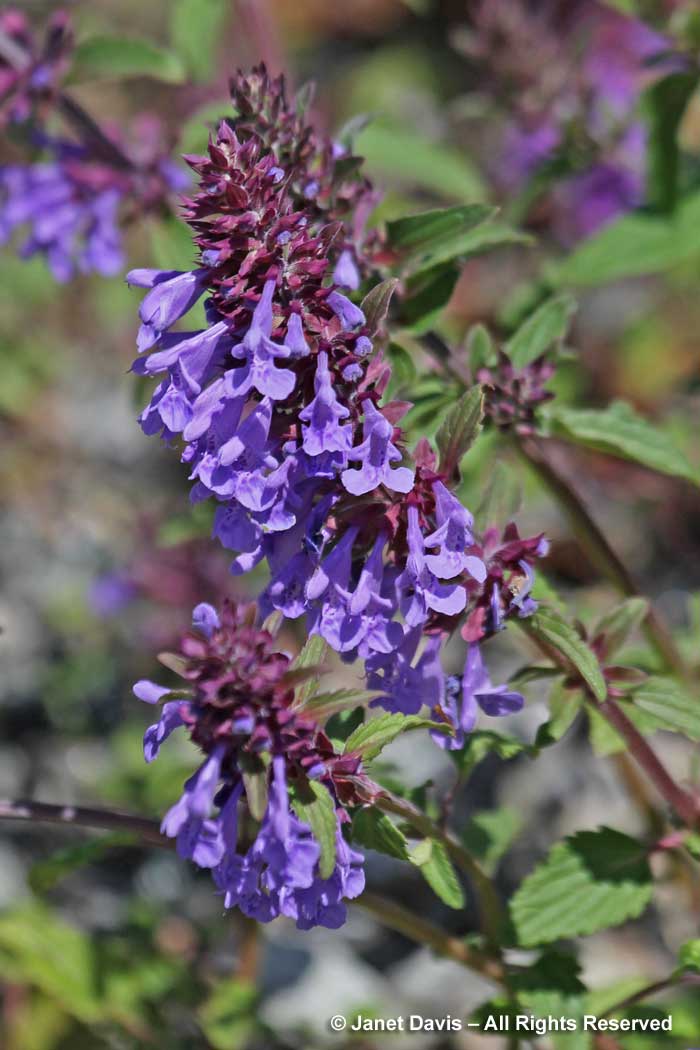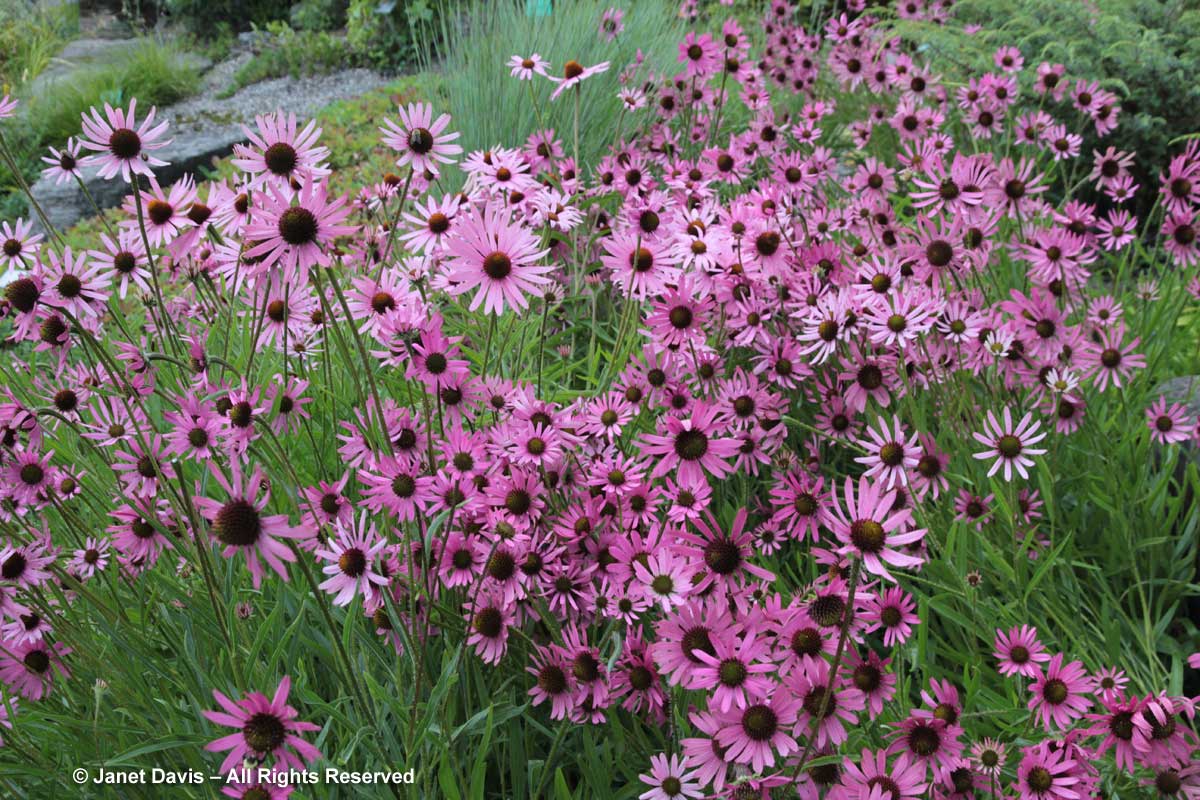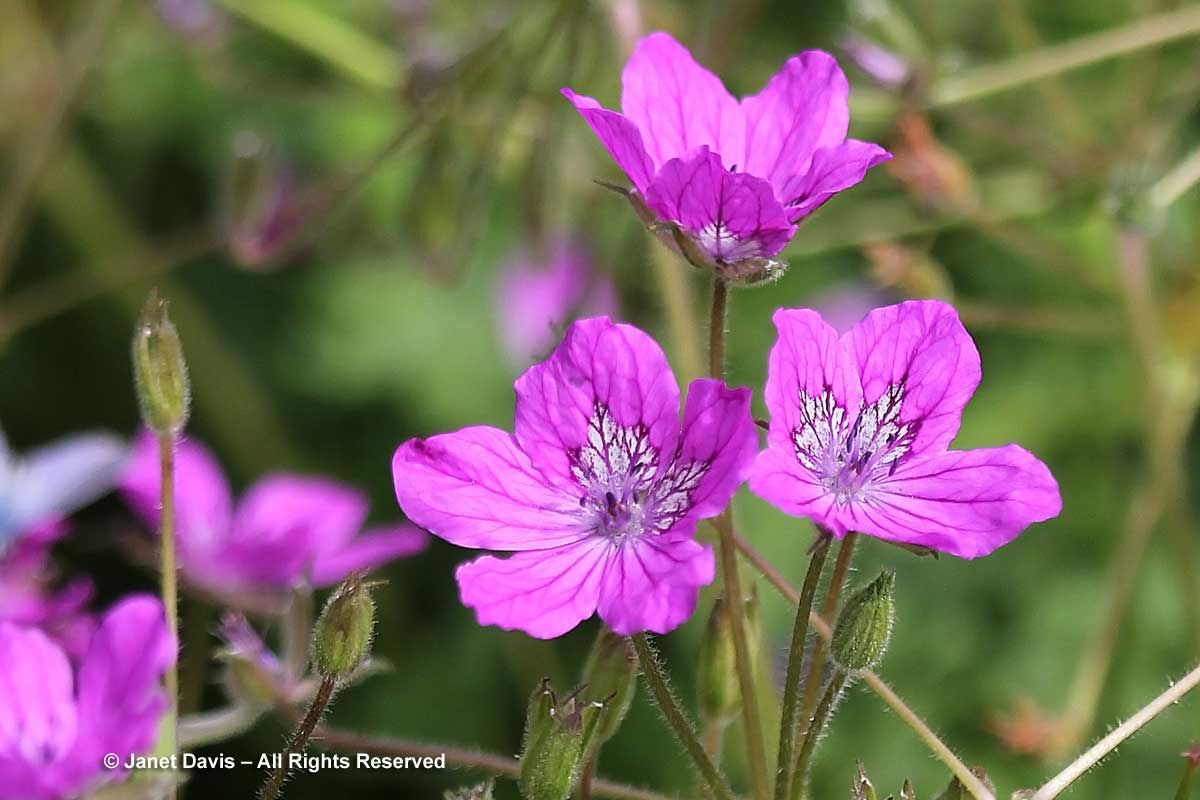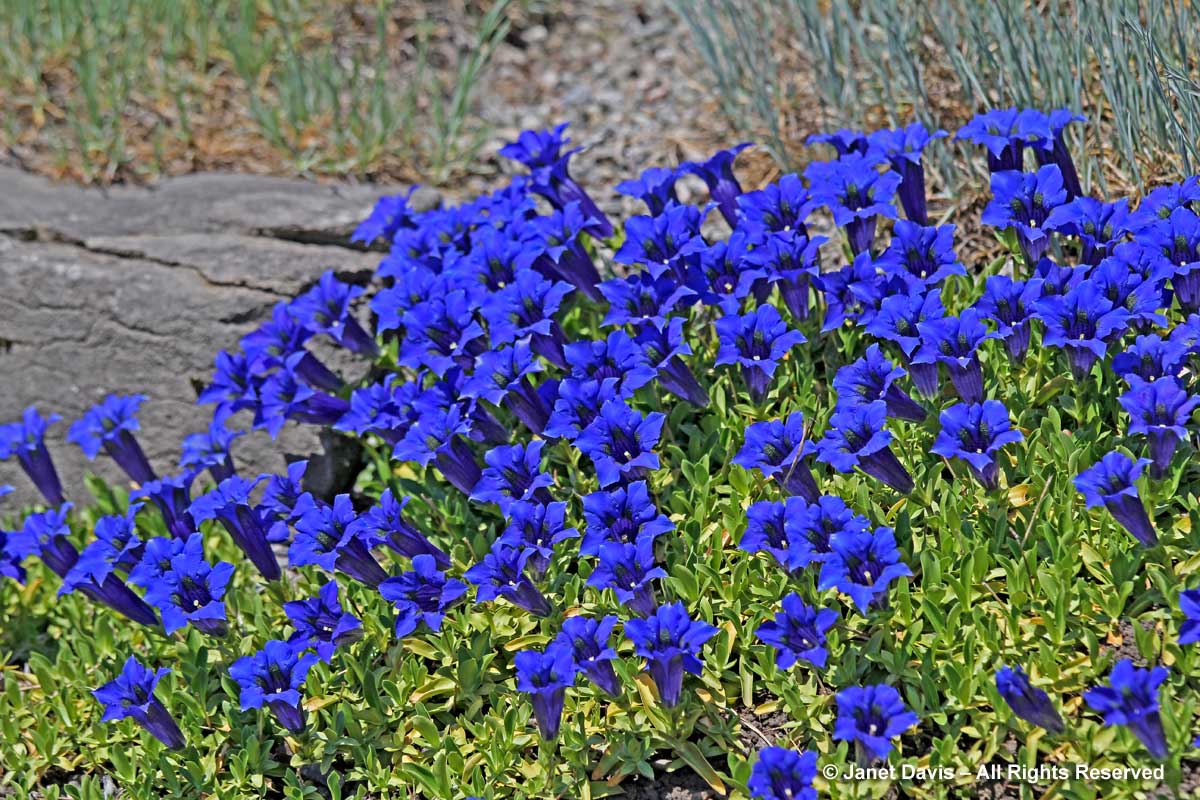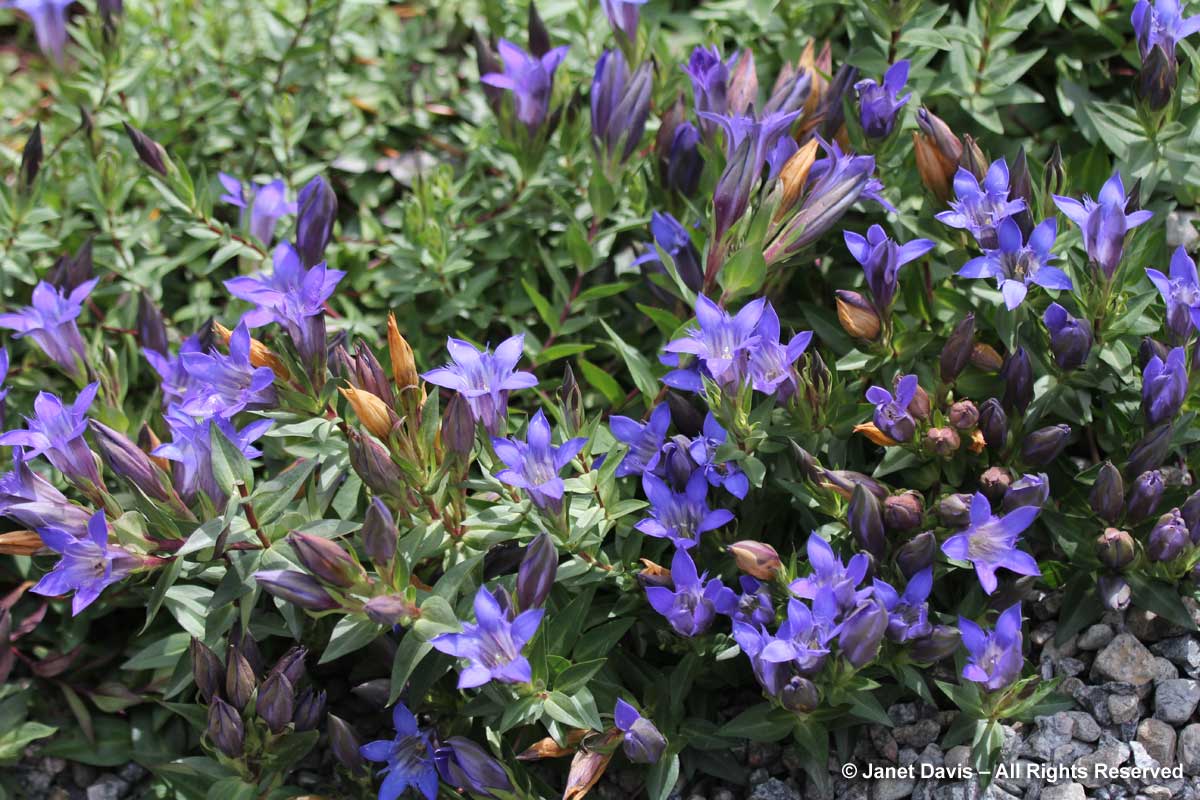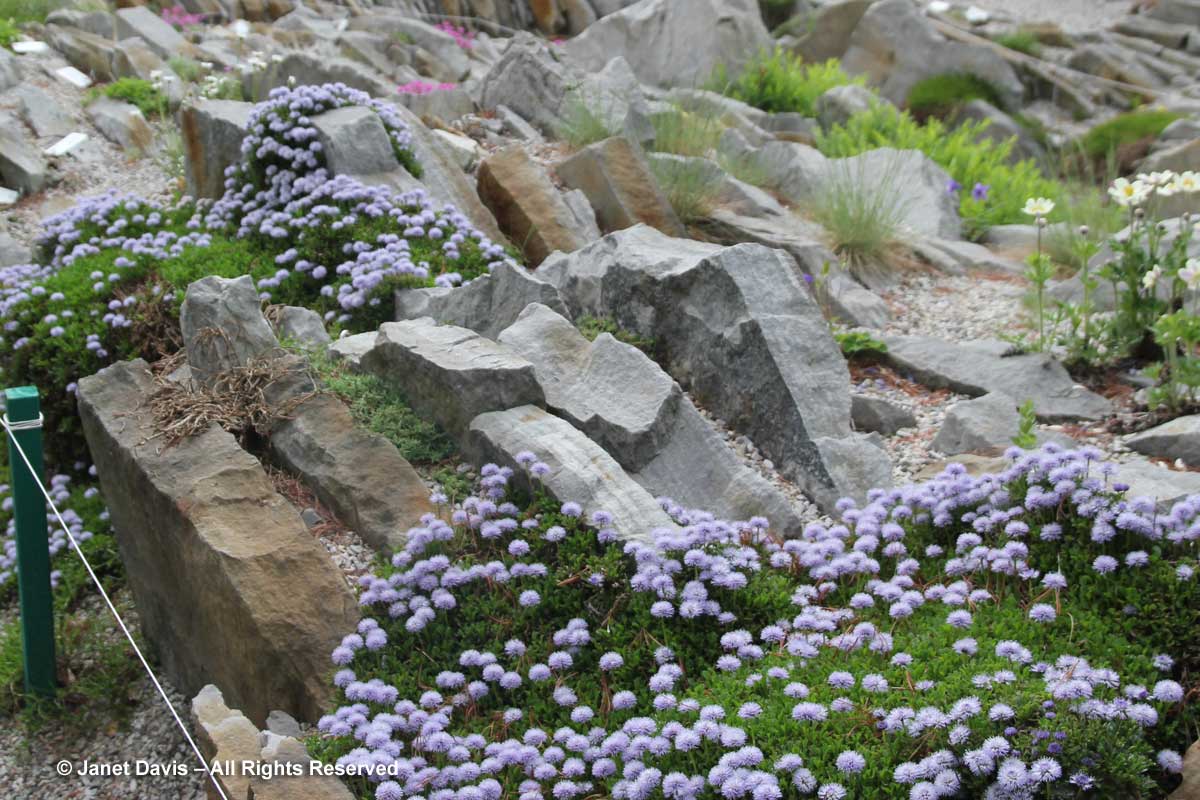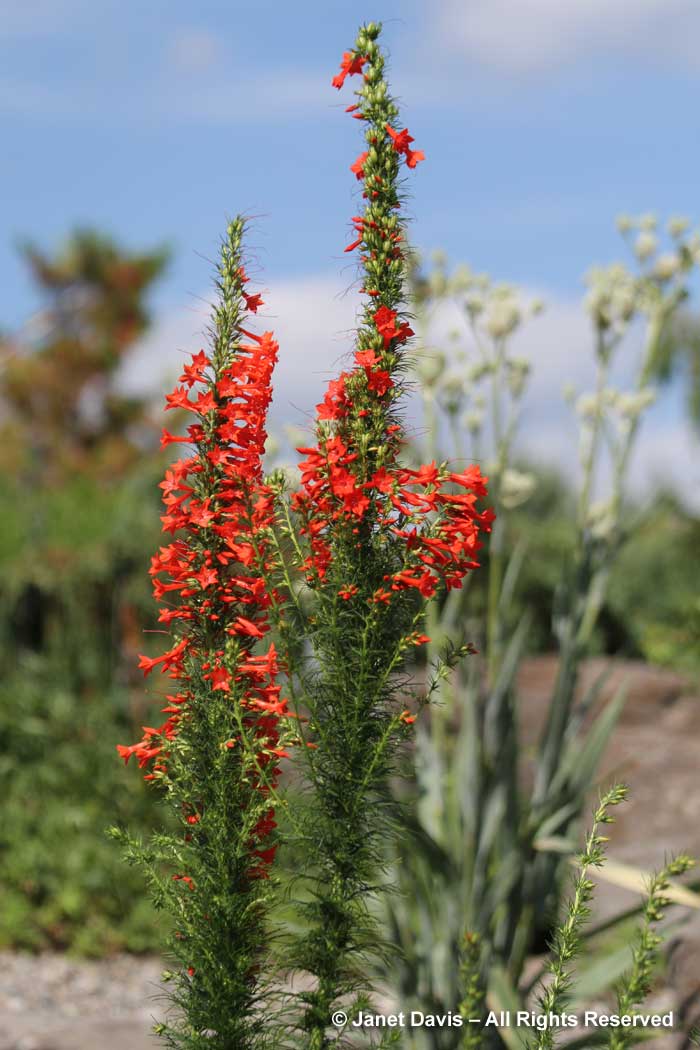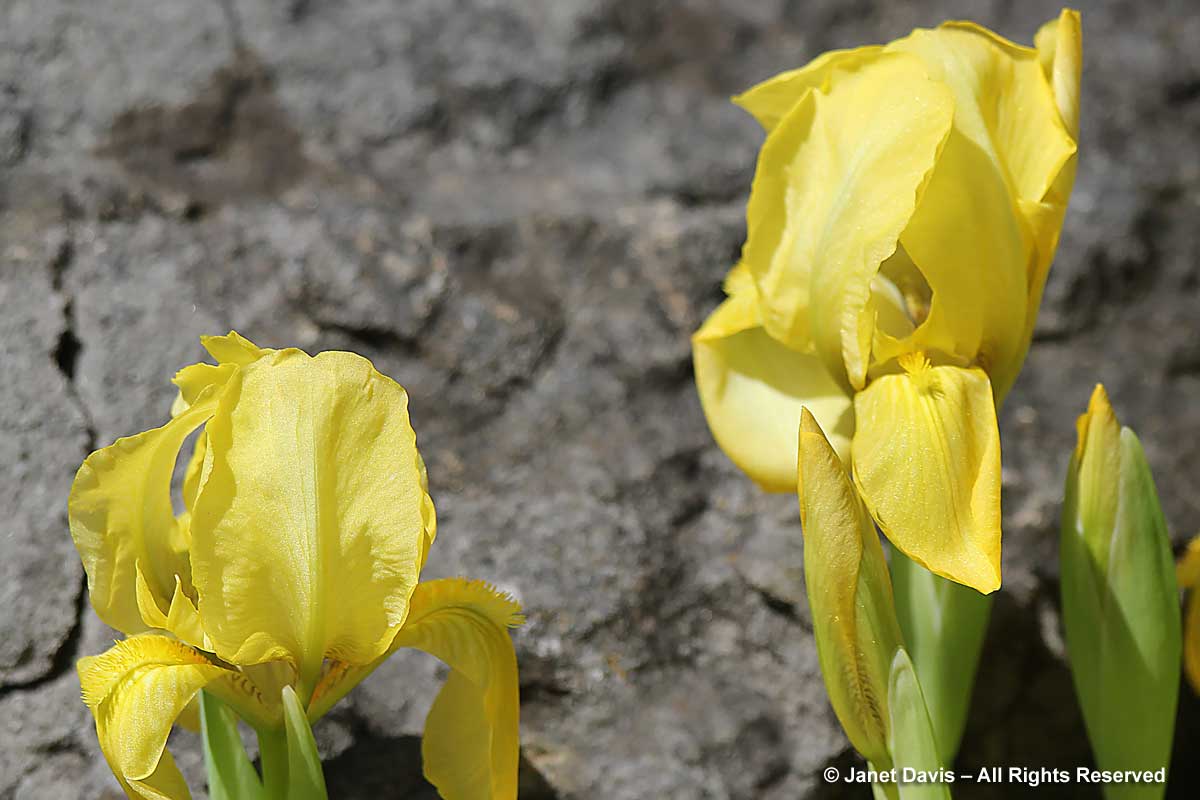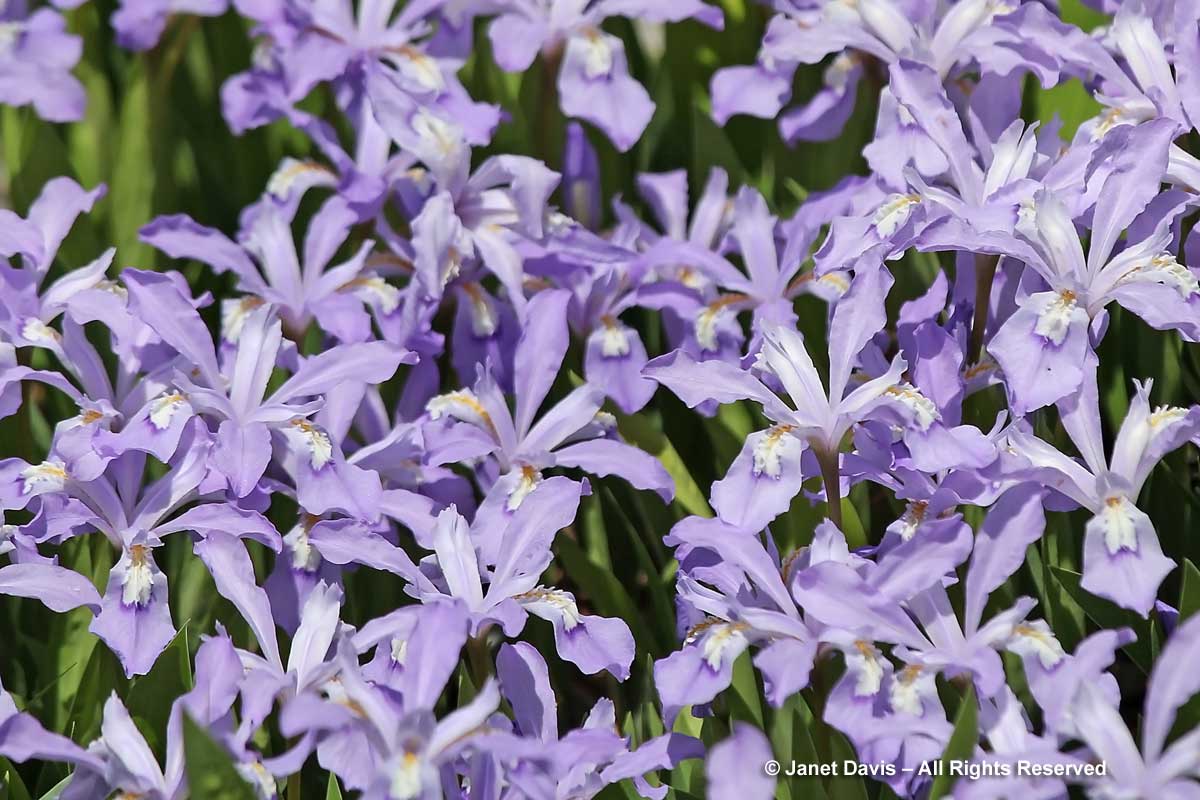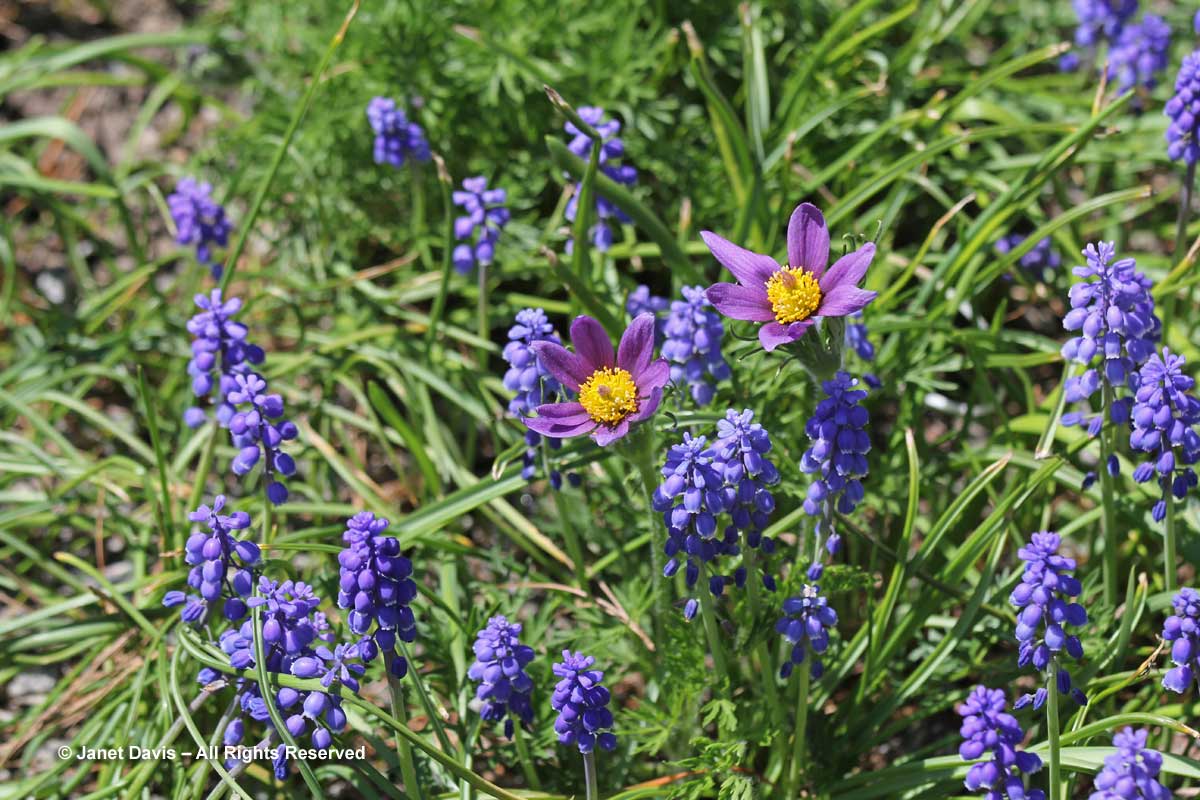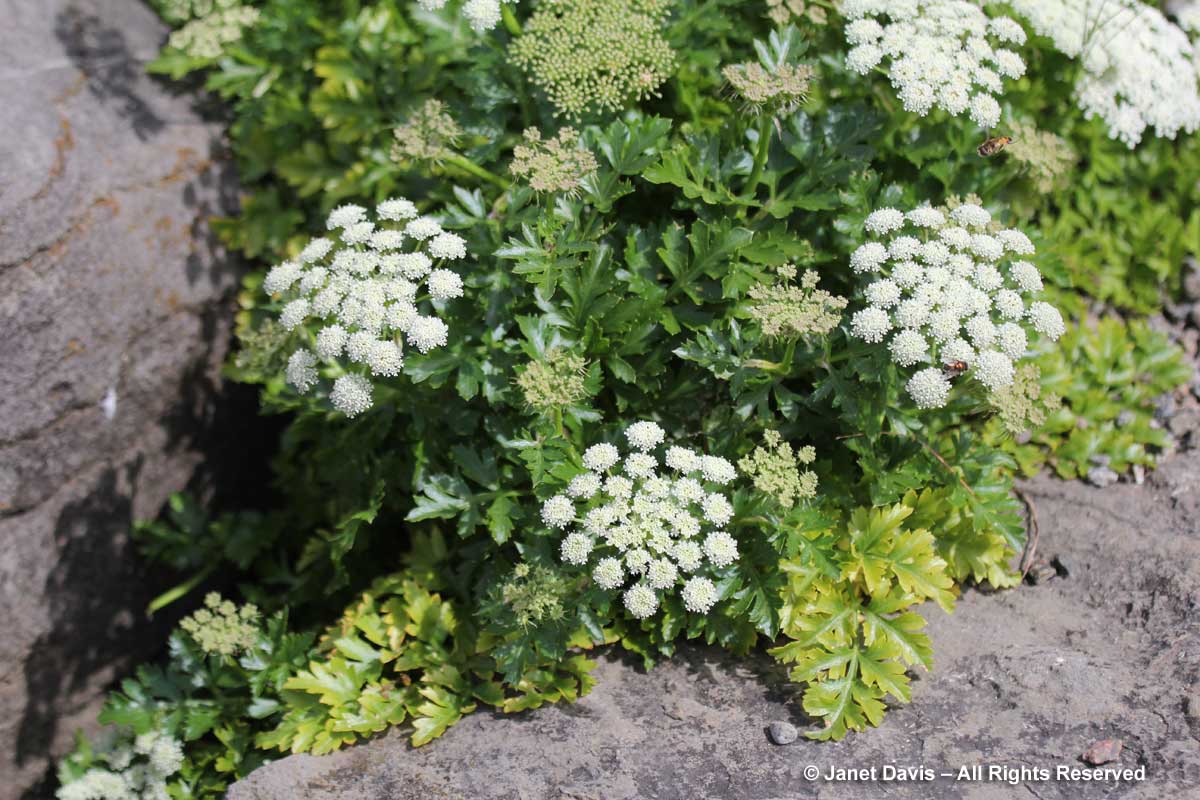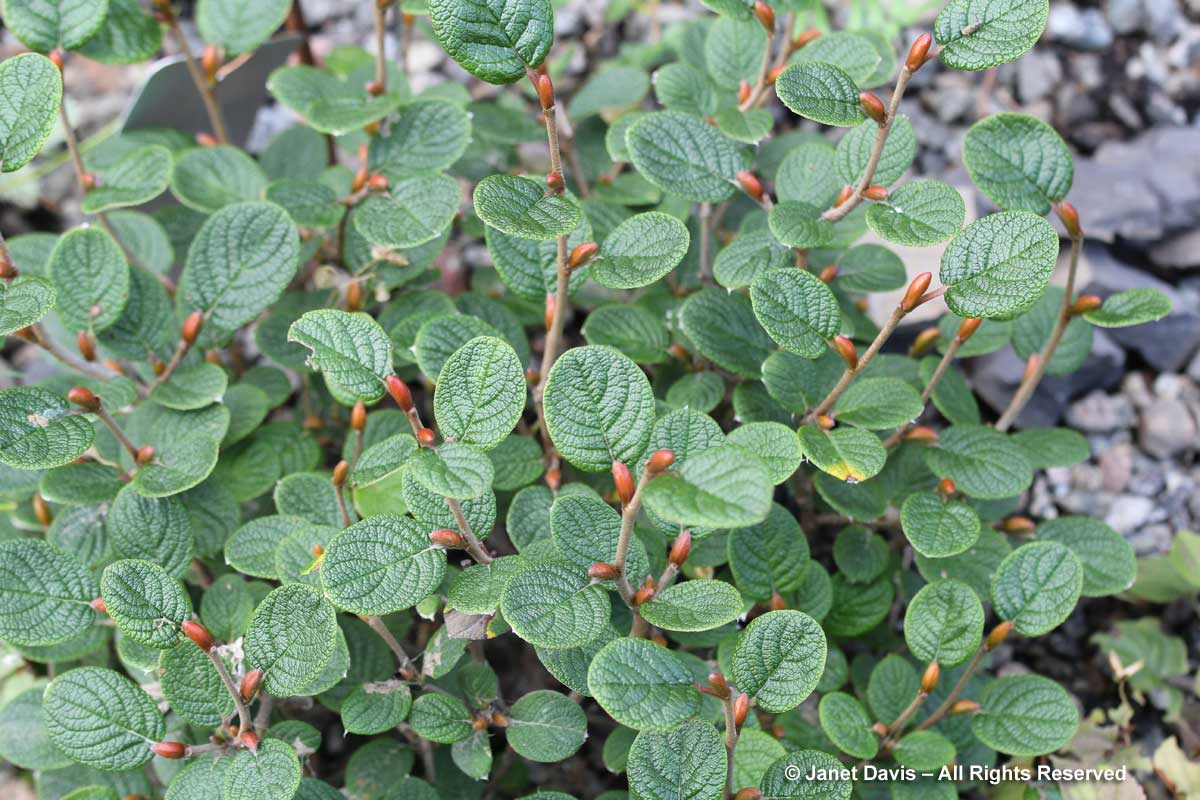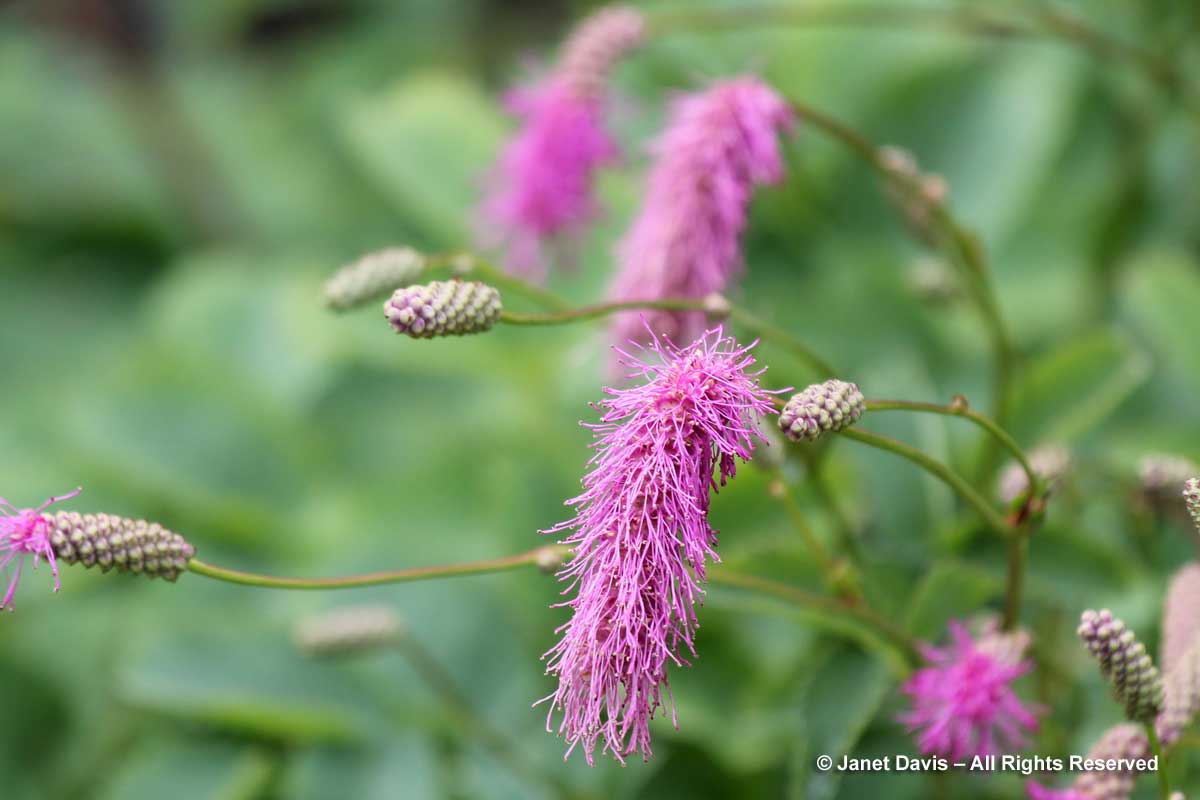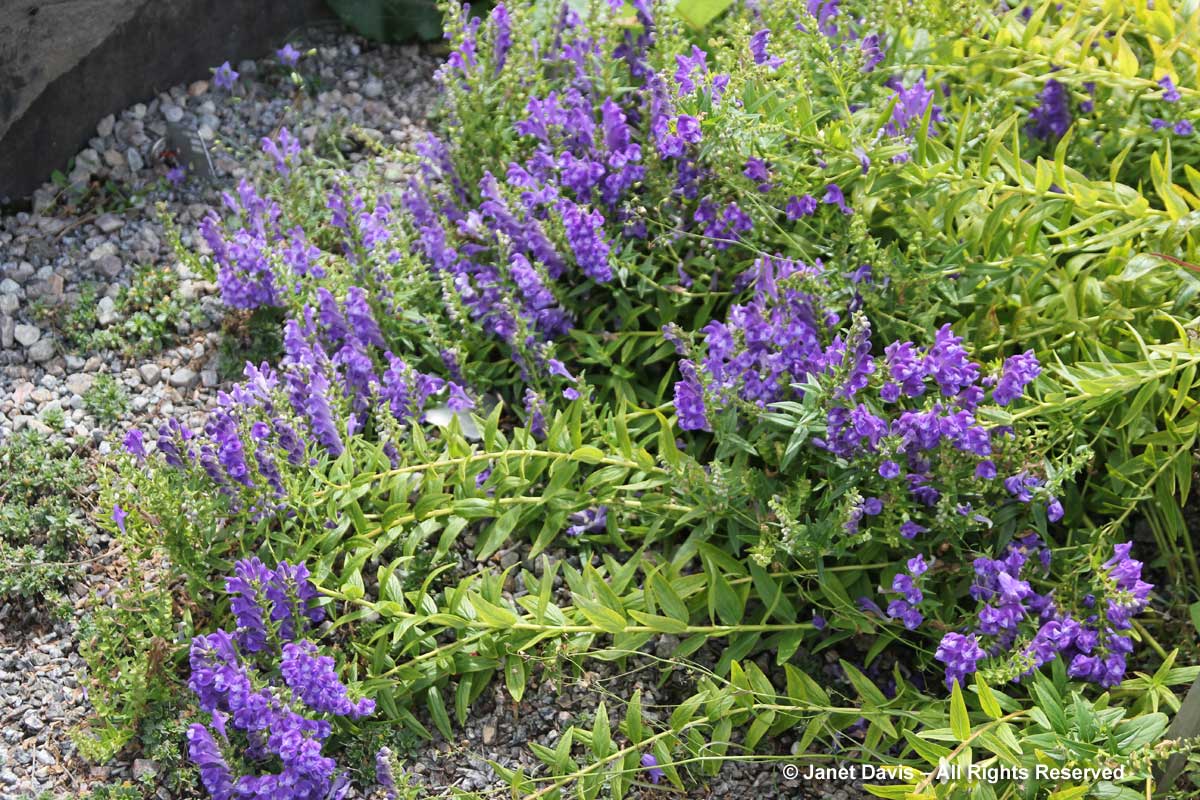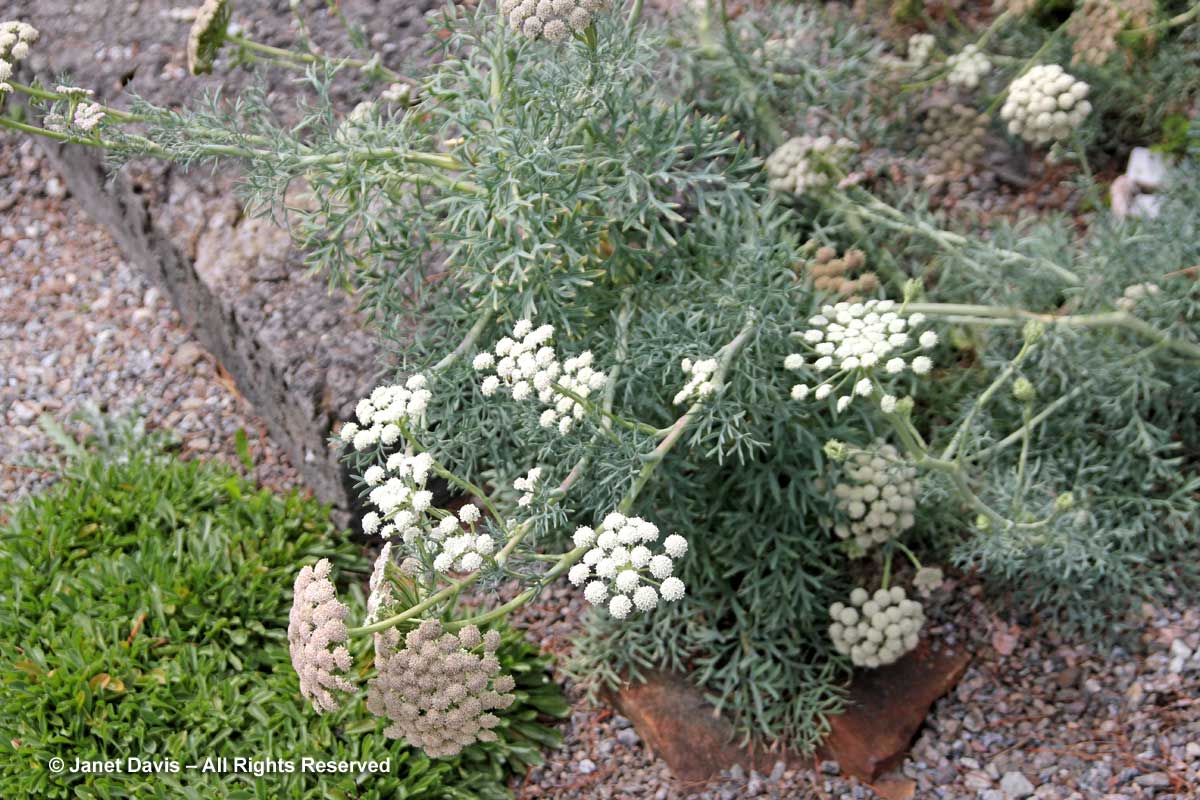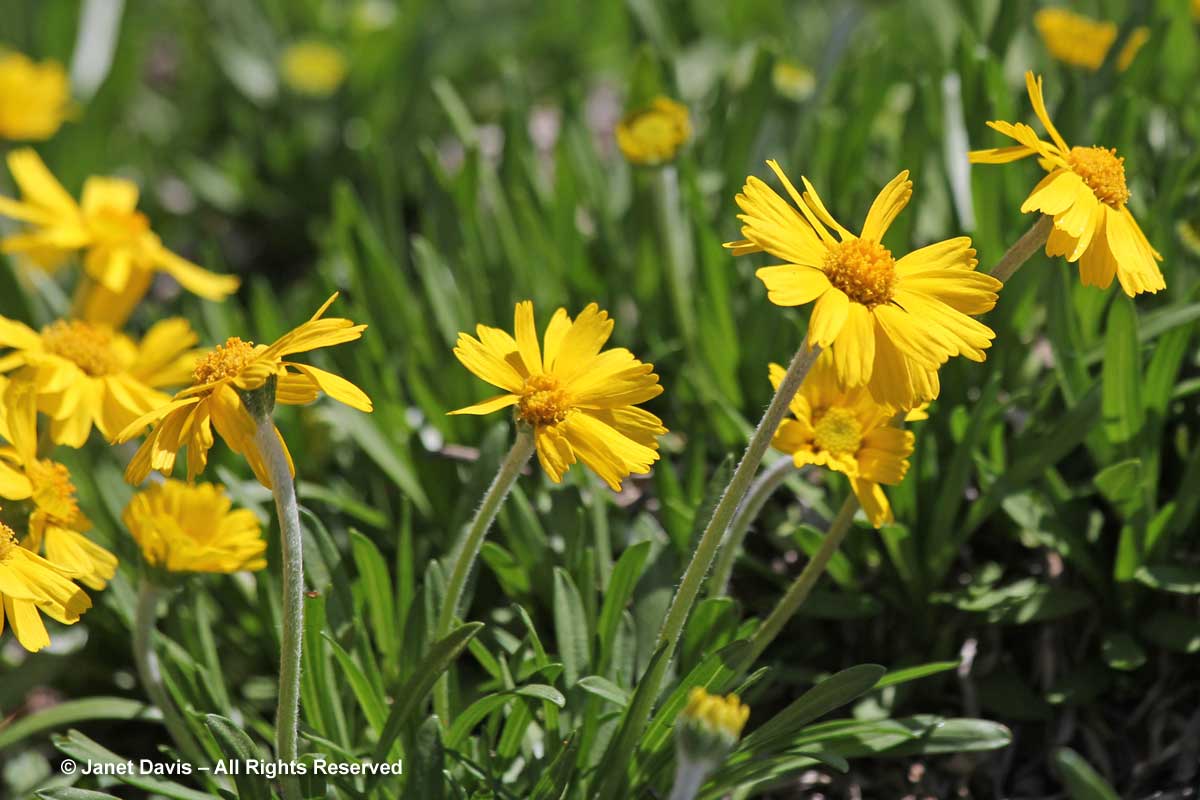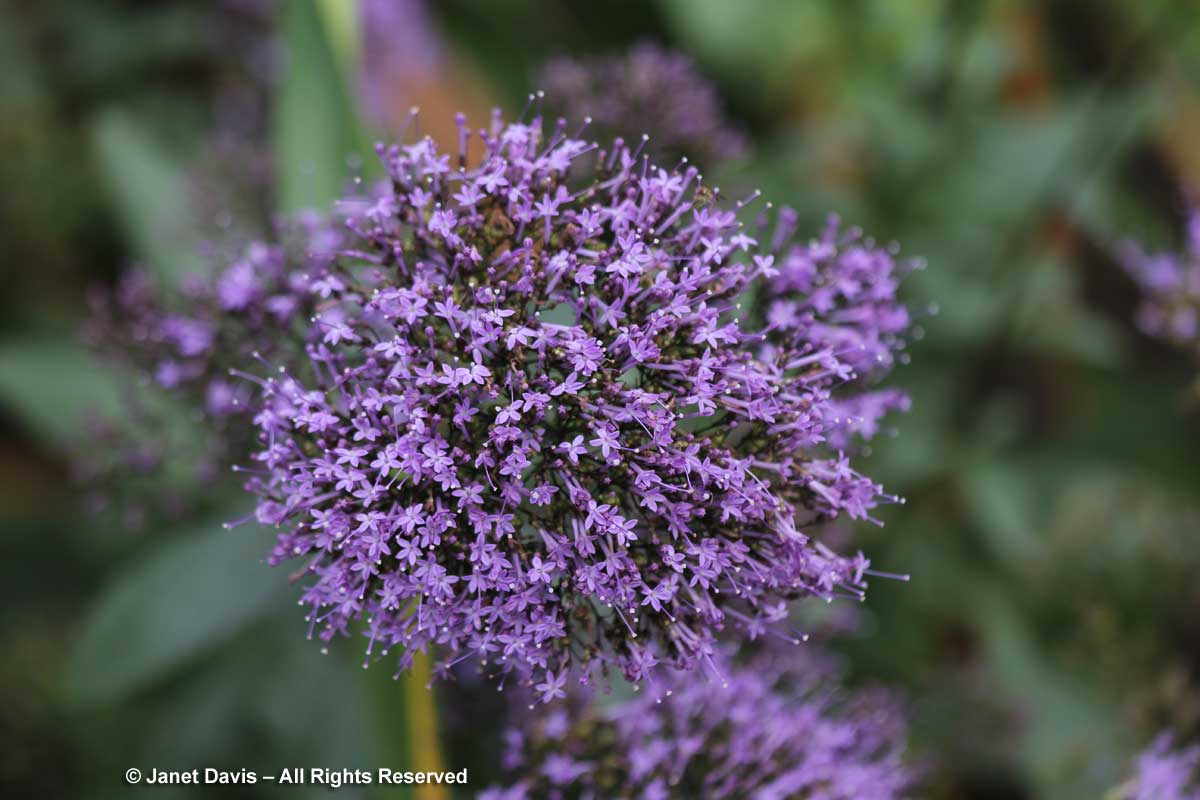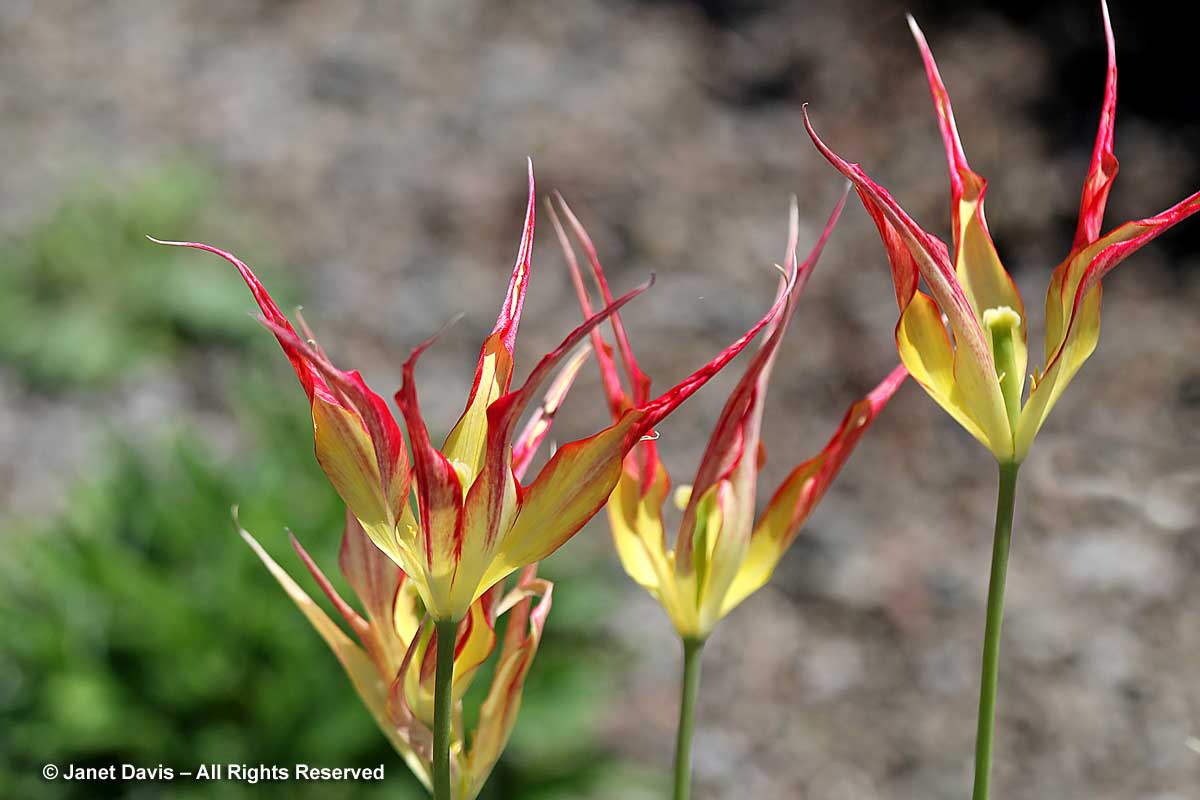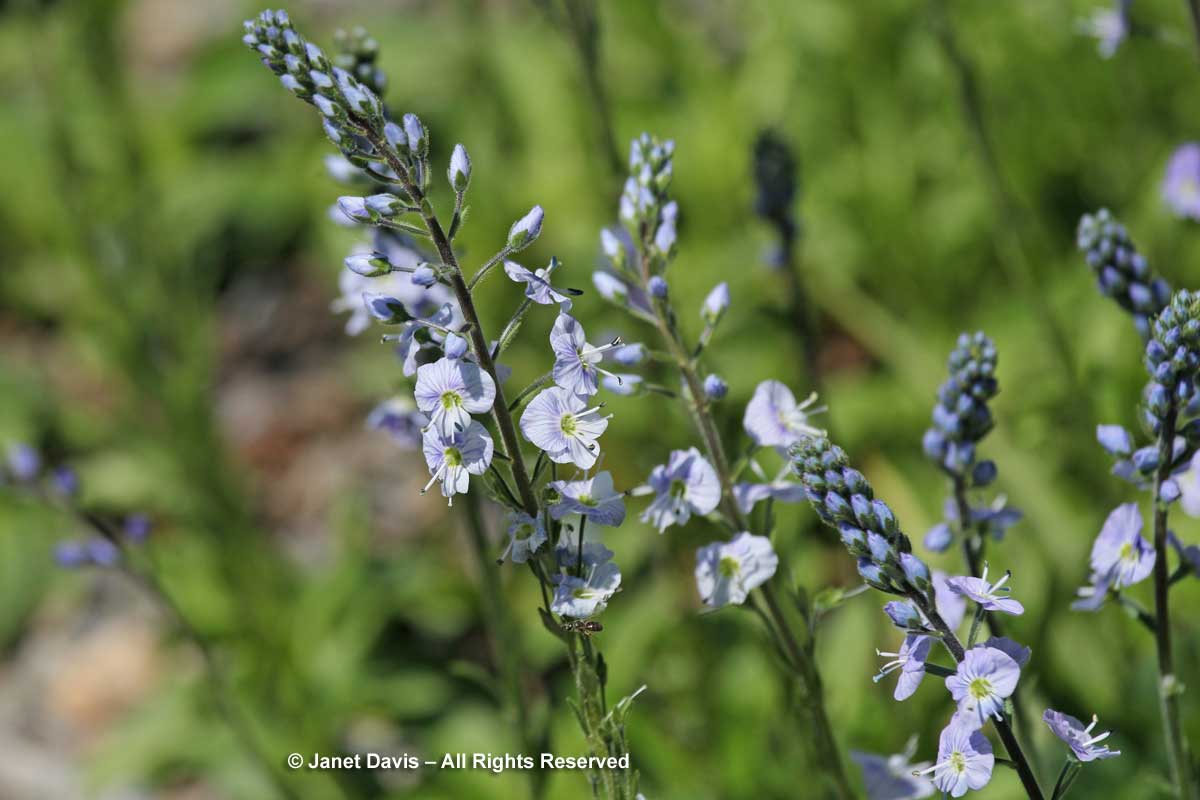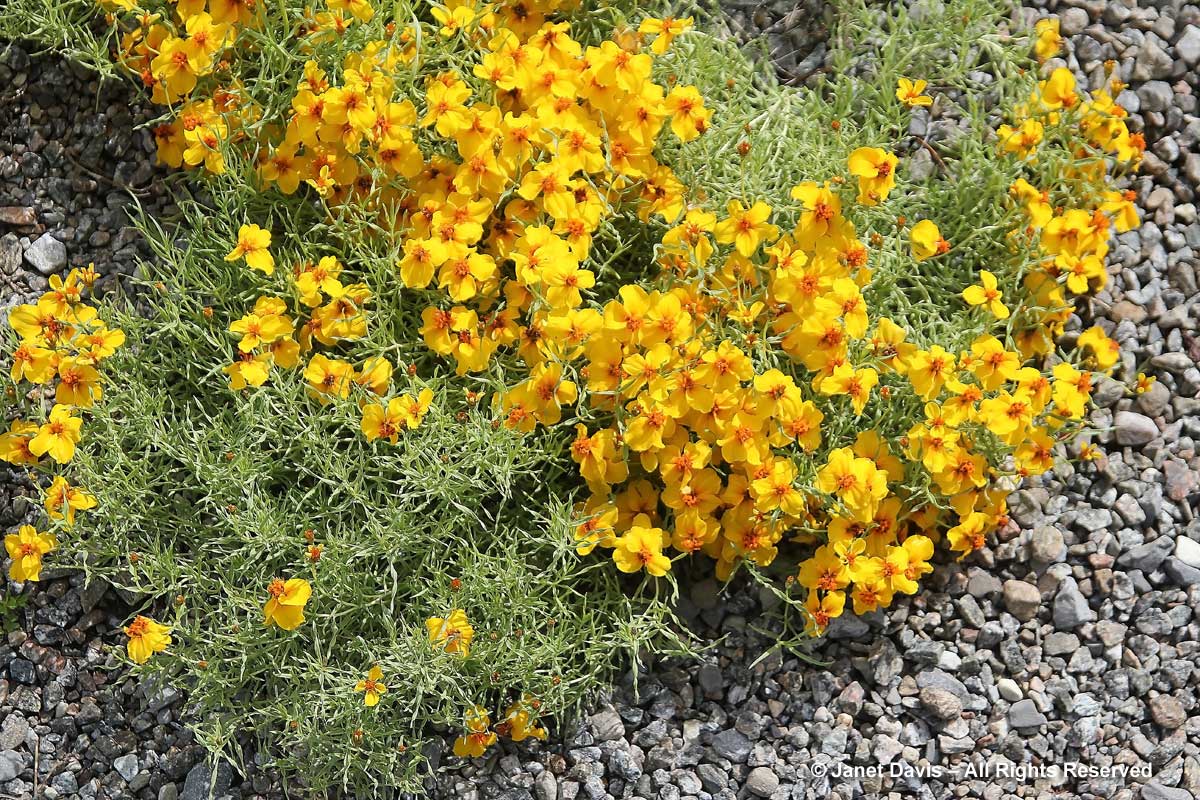This is a little farewell blog to one of the loveliest men in Canadian horticulture: René Giguère, curator of the Alpinum at Montreal Botanical Garden. René is retiring in early March after a career of 40 years spent nurturing alpine plants from all over the globe. It’s a good time to take a rest – and he’ll be able to devote more time to the other love of his life, his beautiful wife Diane.
I’ve been visiting the Jardin Botanique de Montréal for 20 years. It’s one of my top 3 public botanical gardens in North America, both for its deep collections and its creative display gardens, and I’ve written blogs about their fabulous Shade Garden and their spectacular collection of yellow magnolias. I ventured into l’Alpinum or Rock Garden one August day in 2013 and soon found myself searching for a gardener to ask – in my fractured high school French – the name of a plant being buzzed by honey bees (a photography project I was working on at the time). René smiled and replied in excellent English (whew!) that he would have a look at the hidden tag. It was Staehelina uniflosculosa, a plant from the mountains of Greece and Albania.
René and I began to chat, and realized we had friends in common, including Ontario seed maven Kristl Walek and Quebec garden writer Larry Hodgson, who had introduced him to Diane. From then on, when I visited, I would search him out – and was always disappointed when he wasn’t there. As for the garden itself, though it was begun in 1937, World War One intervened and it was not fully finished until 1962. Forty years later, the first of two crevice gardens was installed, the design work of Czech botanist Josef Halda.
A second vertical crevice garden was installed in 2005 by Czech botanist Zdeněk Zvolánek.
You can read about the vertical crevice garden in René’s story for the North American Rock Garden Society’s Spring 2006 Quarterly (pages 94-114).
The Alpine Garden is roughly 10 acres and contains 4,900 taxa. It features plants from the Appalachians and the Rockies….
(including a very live fox!)…
….the Pyrenees…
….as well as the Balkans, the Carpathians, the Caucasus and various parts of Asia.
I thought it would be nice if some of René’s “children” could help say farewell to him on the occasion of his retirement. Here they are, some from May, July and August, arranged by botanical name. And I hope to have the opportunity to photograph many more of his children as the years pass. Felicitations, René! Thanks for making the Alpinum so special, and do enjoy the next chapter in your life.
Krylova’s monkshood (Aconitum krylovii) from Russia’s Altai Mountains, below.
Three-leaved ladybells (Adenophora triphylla) from mountain meadows in Siberia, Korea, Japan, China, Vietnam and Laos.
Licorice mint hyssop (Agastache rupestris) from the mountains of Arizona, New Mexico and Chihuaha state, Mexico. (Incidentally, this is one of the best hummingbird plants!)
Mountain deathcamas (Anticlea elegans, formerly Zigadenus) from alpine meadows in the Rocky Mountains.
Hardy Spanish snapdragon (Antirrhinum braun-blanquetii) from the mountains of Spain and Portugal.
Fan columbine (Aquilegia flabellata) from the mountains of northern Japan, Sakhalin and the Kuril Islands.
Juniper-leaved thrift (Armeria juniperifolia) from the mountainous regions of central Spain.
Orange-stalked bulbine (Bulbine frutescens) native to South Africa, Lesotho and Swaziland.
Lovely combination of (circumboreal) Olympic harebell (Campanula rotundifolia) and spotted beebalm (Monarda punctata), both native to North America.
Virgin’s bower (Clematis virginiana) native to the Piedmont Mountains of the U.S.
Dianthus nardiformis an endangered pink native to the mountains of Bulgaria and Romania.
Nodding dragons-head (Dracocephalum nutans) from alpine slopes in Pakistan and Kashmir.
Tennessee coneflower (Echinacea tennesseensis), a federally endangered species from rocky cedar glades in the mountains of Tennessee.
Manescau’s erodium (Erodium manescavii) from the Pyrenees.
Azure-blue stemless or trumpet gentian (Gentiana acaulis) from the European Alps.
Gentiana septemfida ssp. grossheimii from the Caucasus Mountains.
Globe daisy (Globularia nudicaulis) from the mountains of Northern Spain, the Alps and the Pyrenees.
Gorgeous standing cypress (Ipomopsis rubra) from the Rocky Mountains through to Texas and Ontario. (Another good hummingbird plant!)
Crimean iris (Iris lutescens) from rocky hillsides of Italy, southern France and northeast Spain.
Lovely crested iris (Iris cristata) from the Great Smoky Mountains to the Ohio Valley.
A pretty combination of common grape hyacinth (Muscari armeniacum) from the Caucasus Mountains, Turkey and Greece and European pasque flower (Pulsatilla vulgaris) from calcareous slopes in Europe.
Coastal hogfennel (Peucedanum japonicum) from Japan and Korea.
Rock willow (Salix vestita) from the subalpine zones of mountains in eastern British Columbia, Alberta, north to Nunavut and central Siberia.
Japanese burnet (Sanguisorba obtusa) from the serpentine mountains of North Honshû, Japan.
Chinese or Baikal skullcap (Scutellaria baicalensis) from mountains of China, Russia, Mongolia, China and Korea.
Moon carrot (Seseli gummiferum) from limestone cliffs in Eastern Europe, the Aegean and Crimea.
Lakeside or Four-nerved daisy (Tetraneuris herbacea) from limestone alvars of the Great Lakes basin of North America.
Blue throatwort (Trachelium caeruleum) from rocky banks near the Mediterranean.
Horned garden tulip (Tulipa gesneriana ‘Cornuta’, often referred to as T. acuminata, invalid sp.) from Turkey.
Gentian speedwell (Veronica gentianoides) from the Carpathian Mountains of Eastern Europe.
Rocky Mountains zinnia, Plains zinnia (Zinnia grandiflora) from dry calcareous slopes and plains from Colorado to Arizona, Texas and Mexico.


